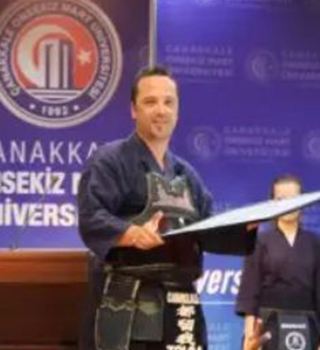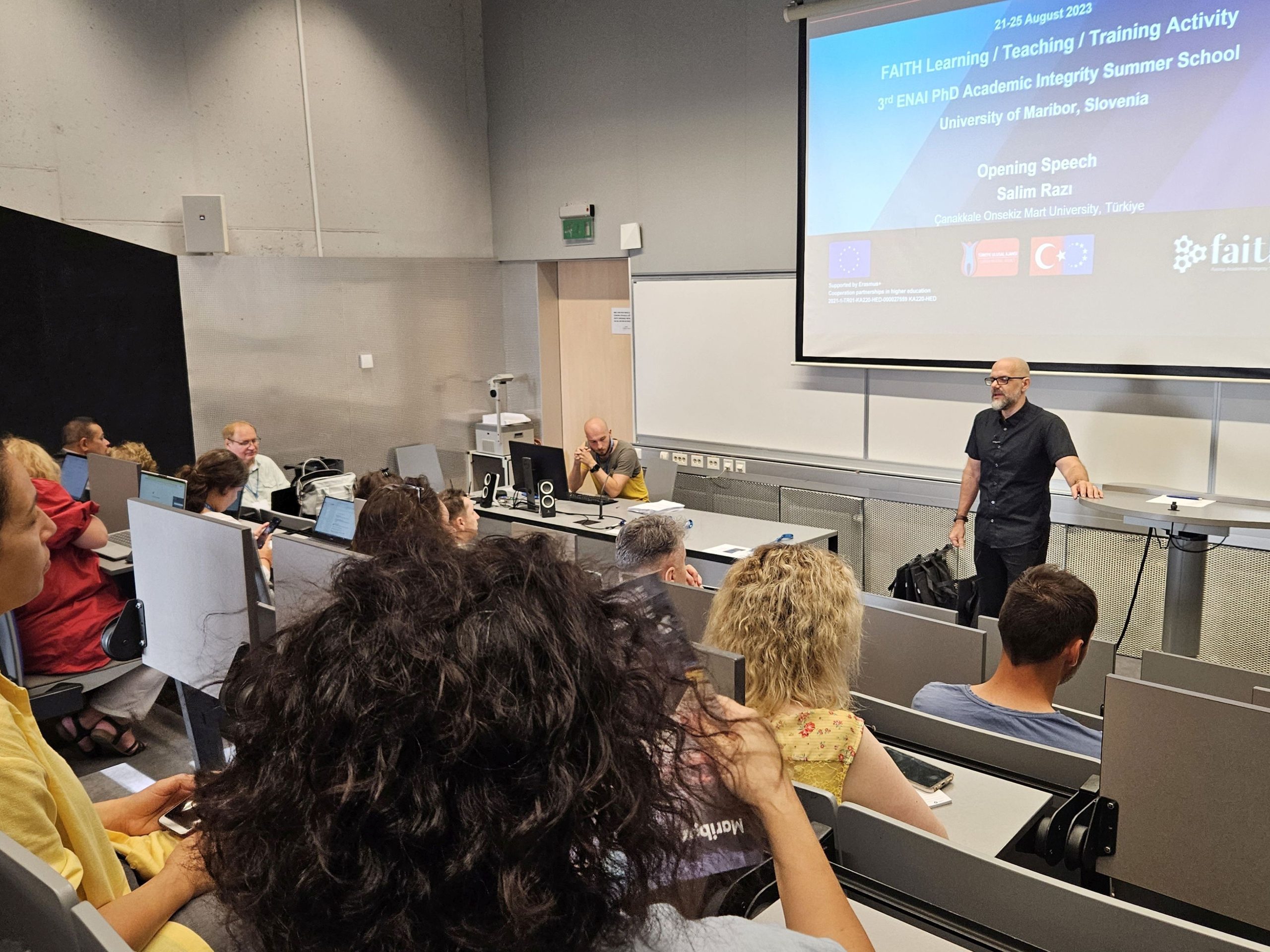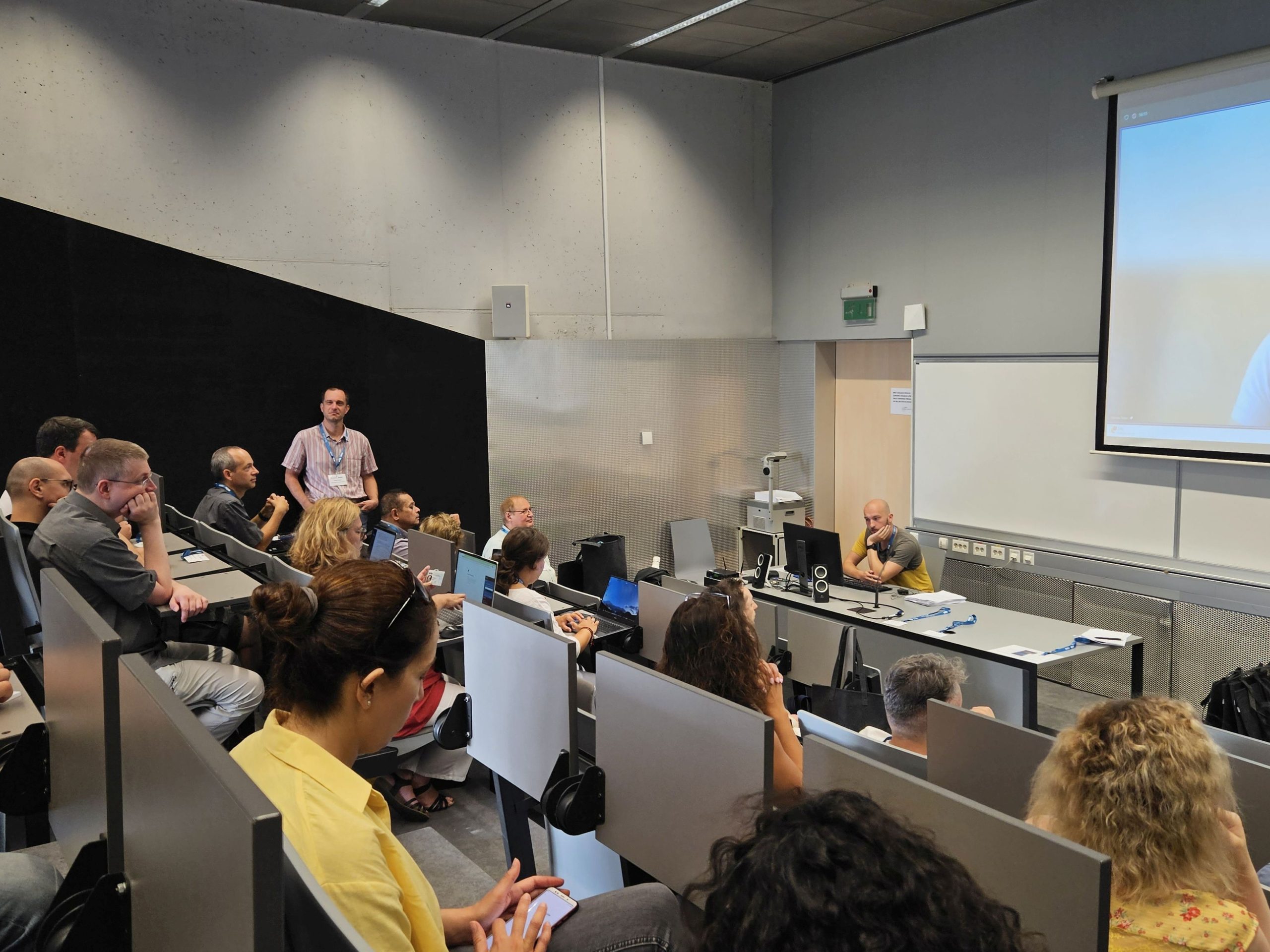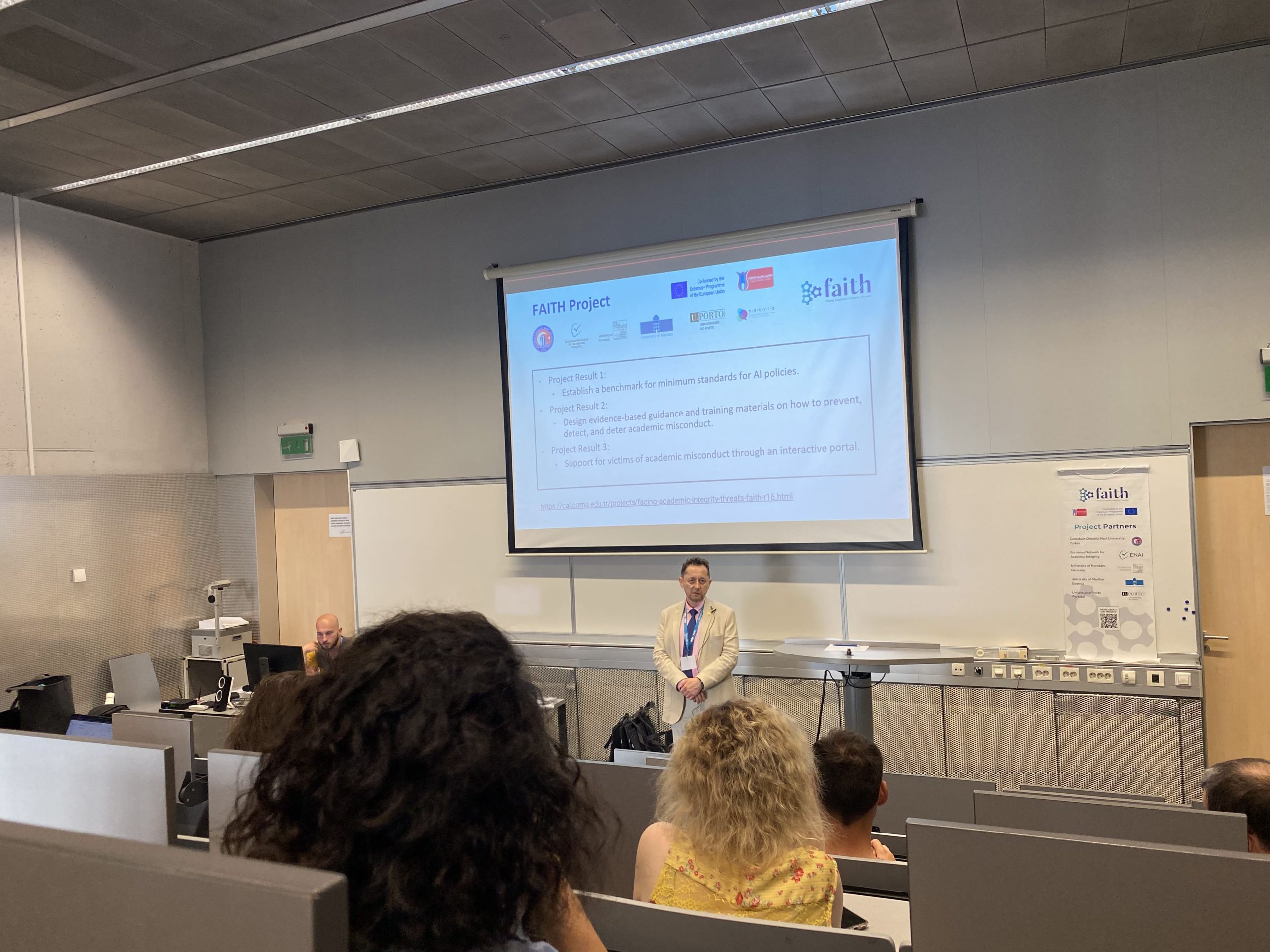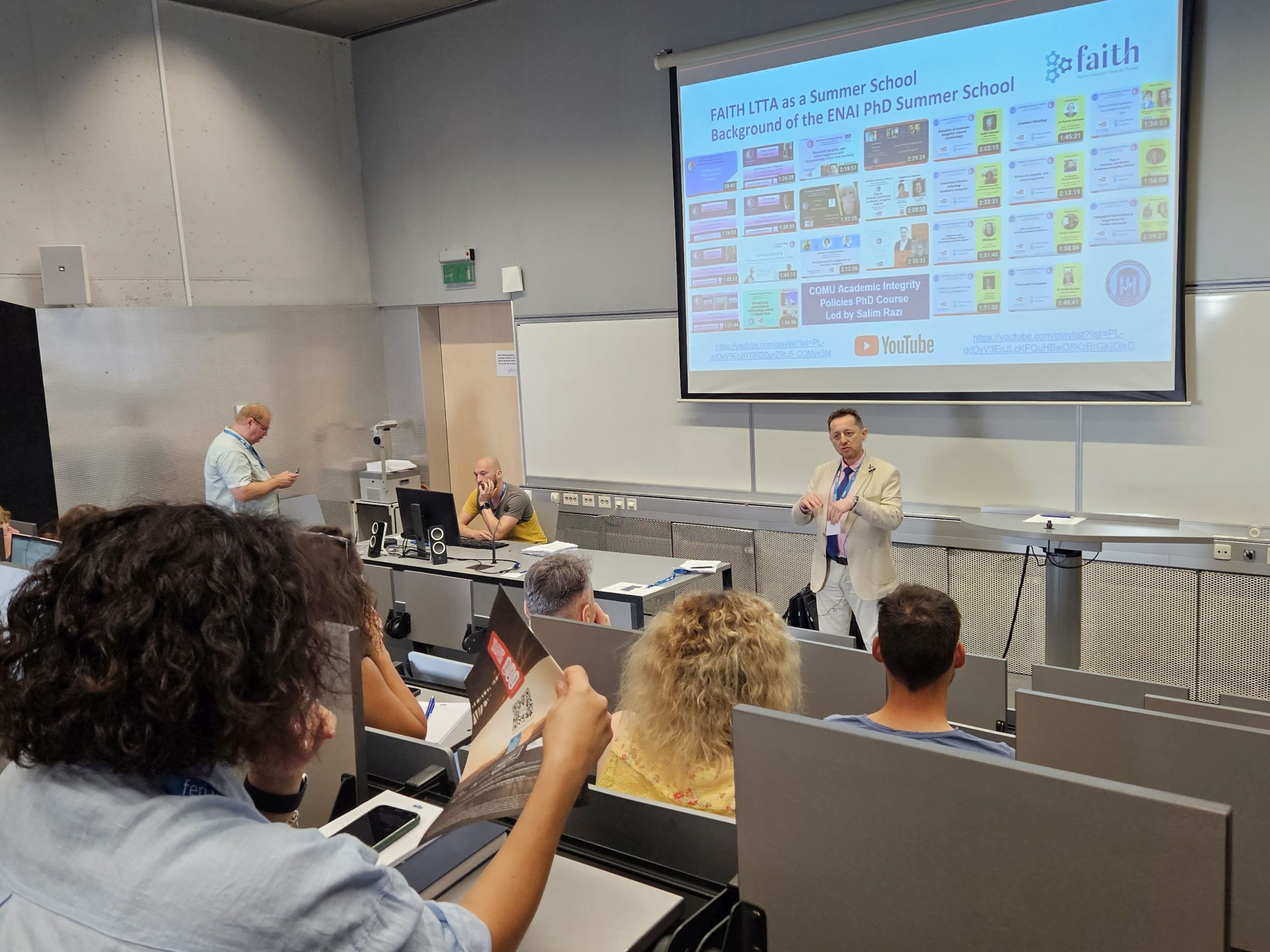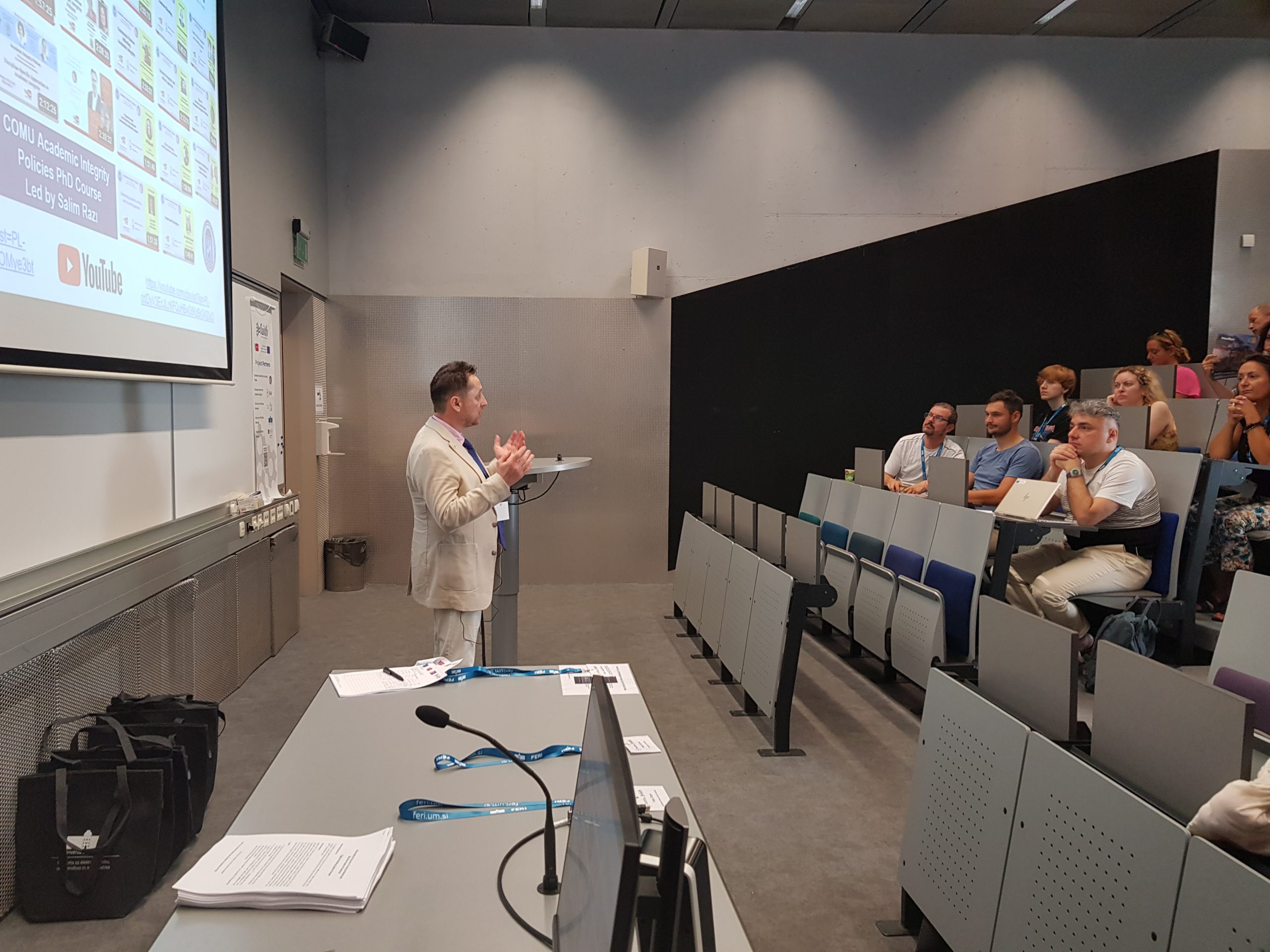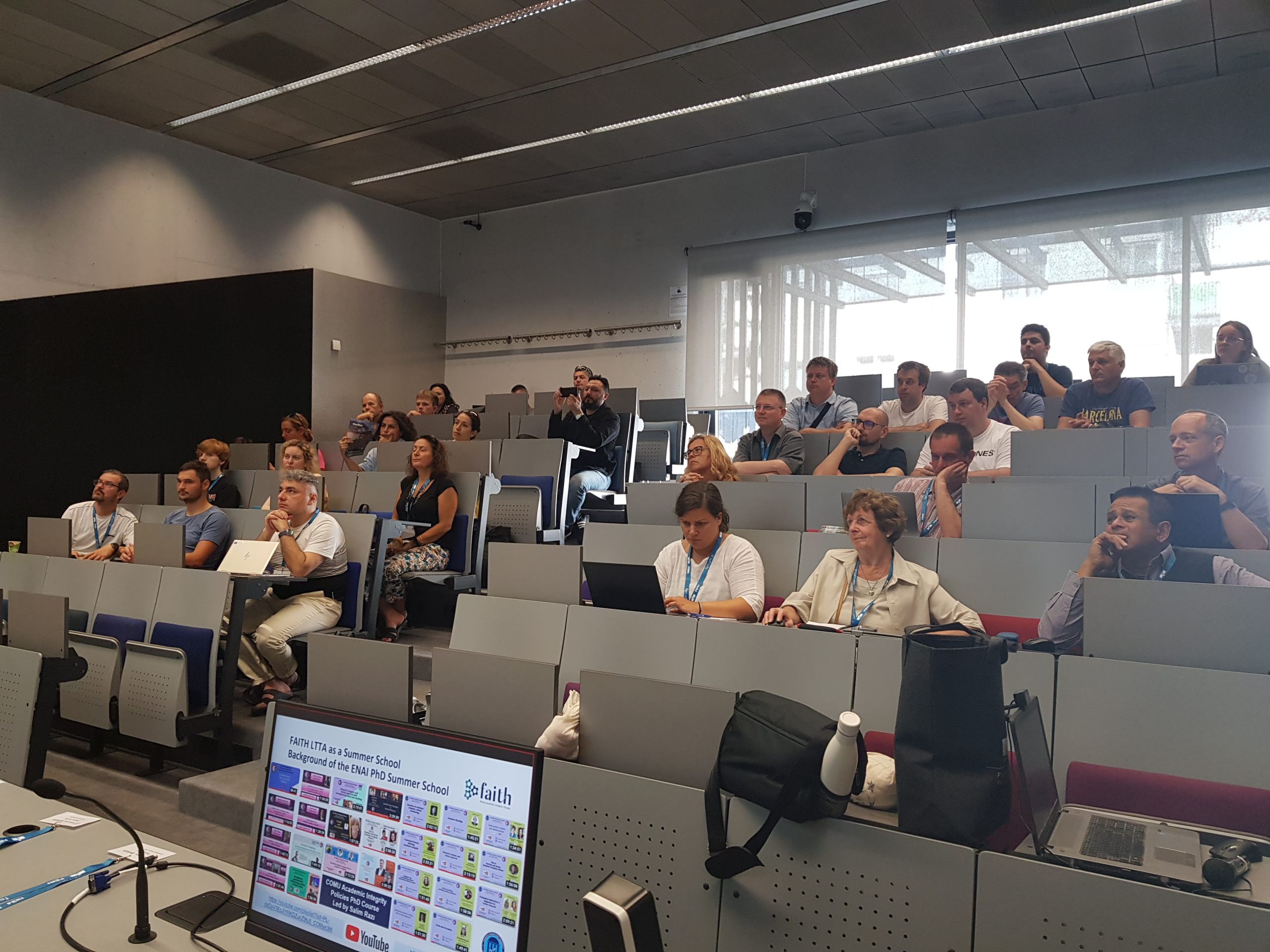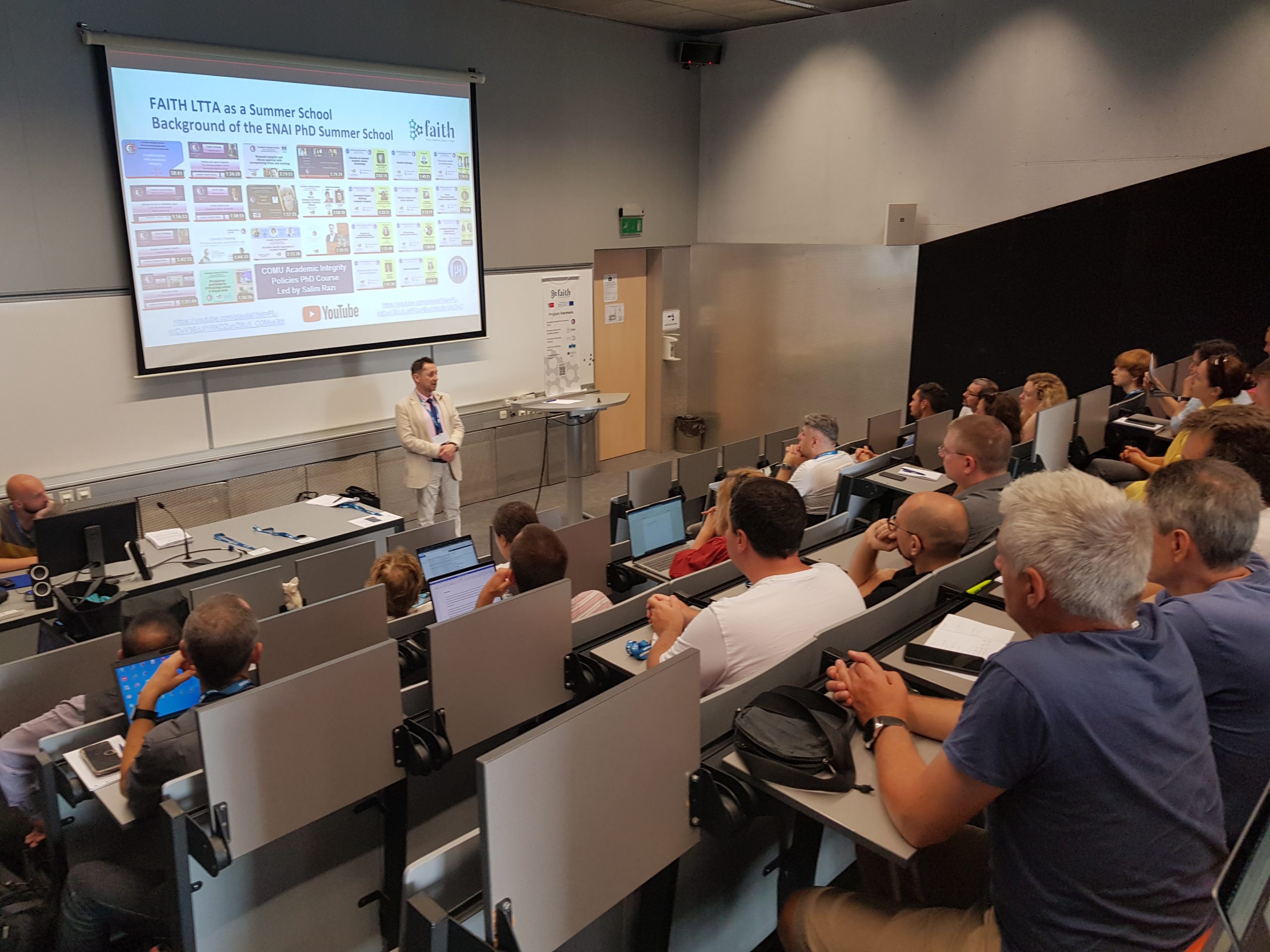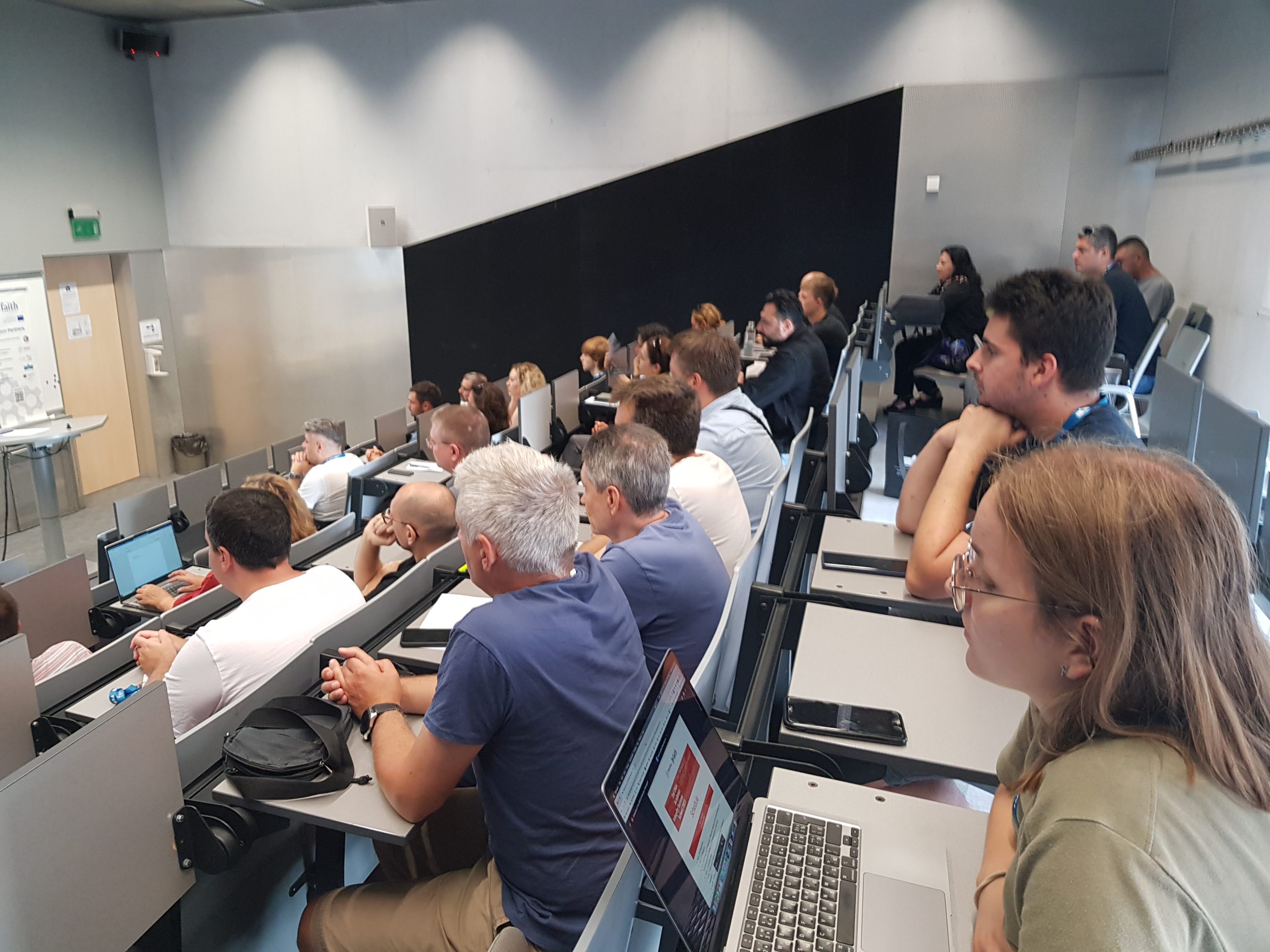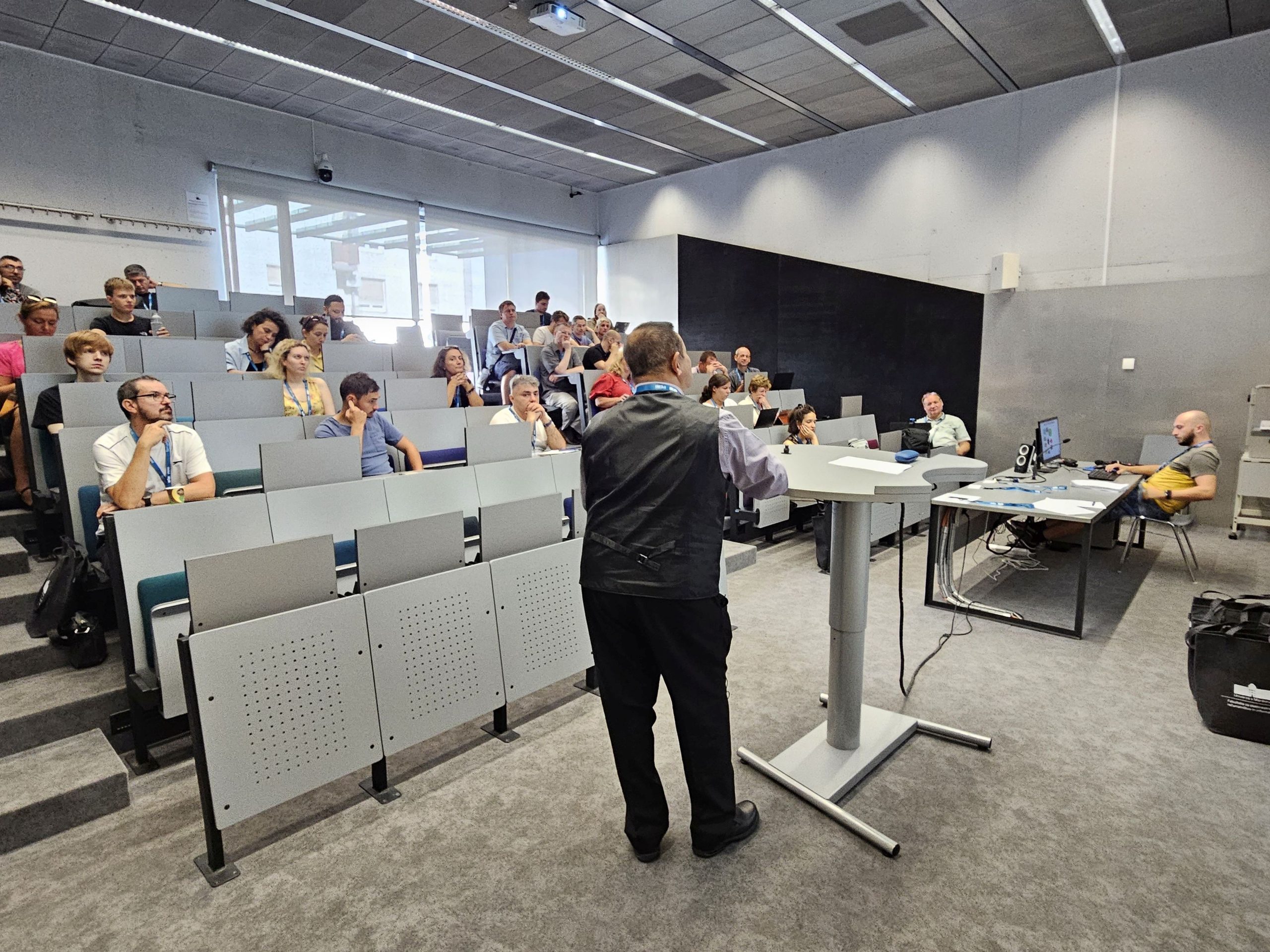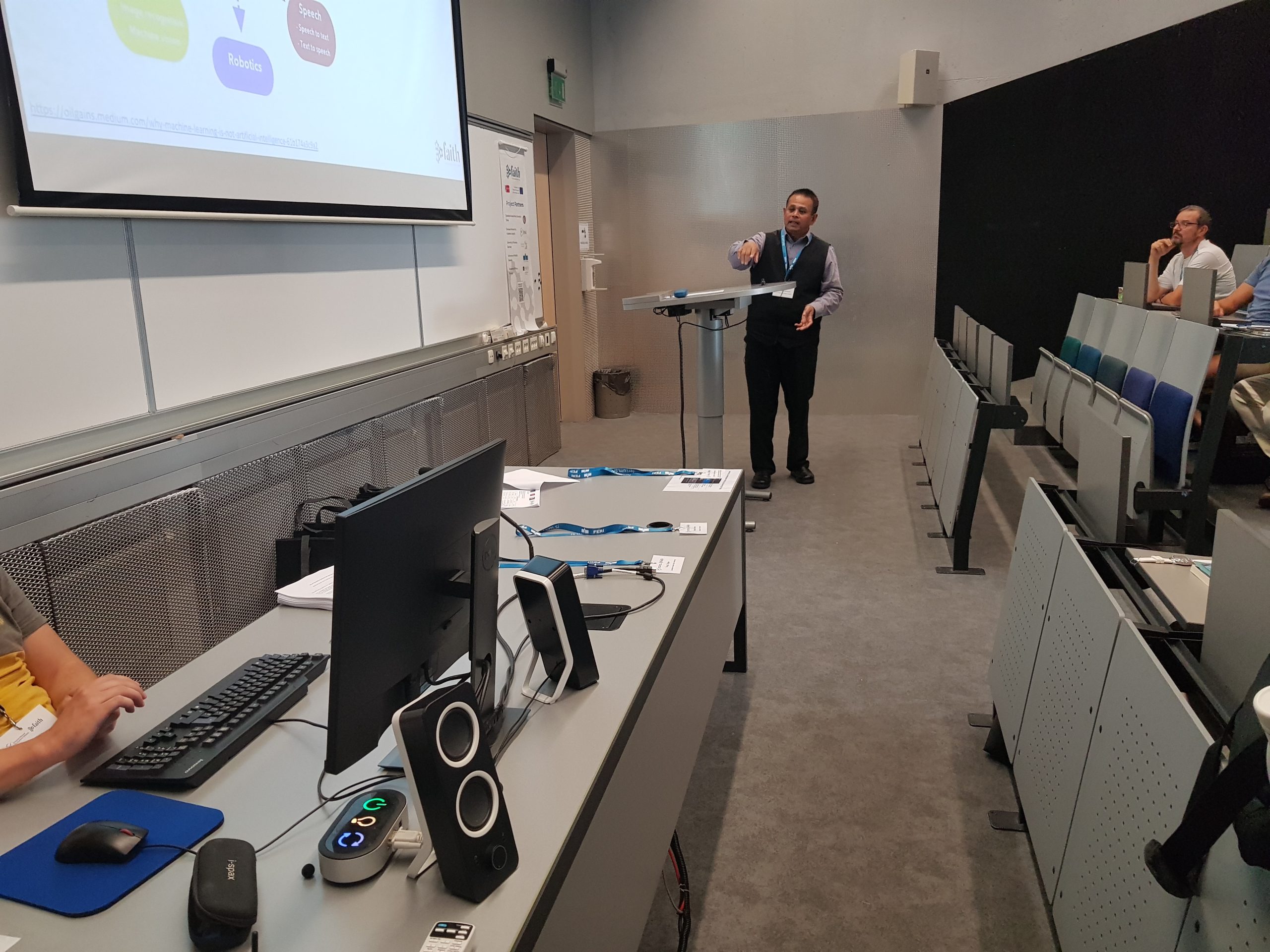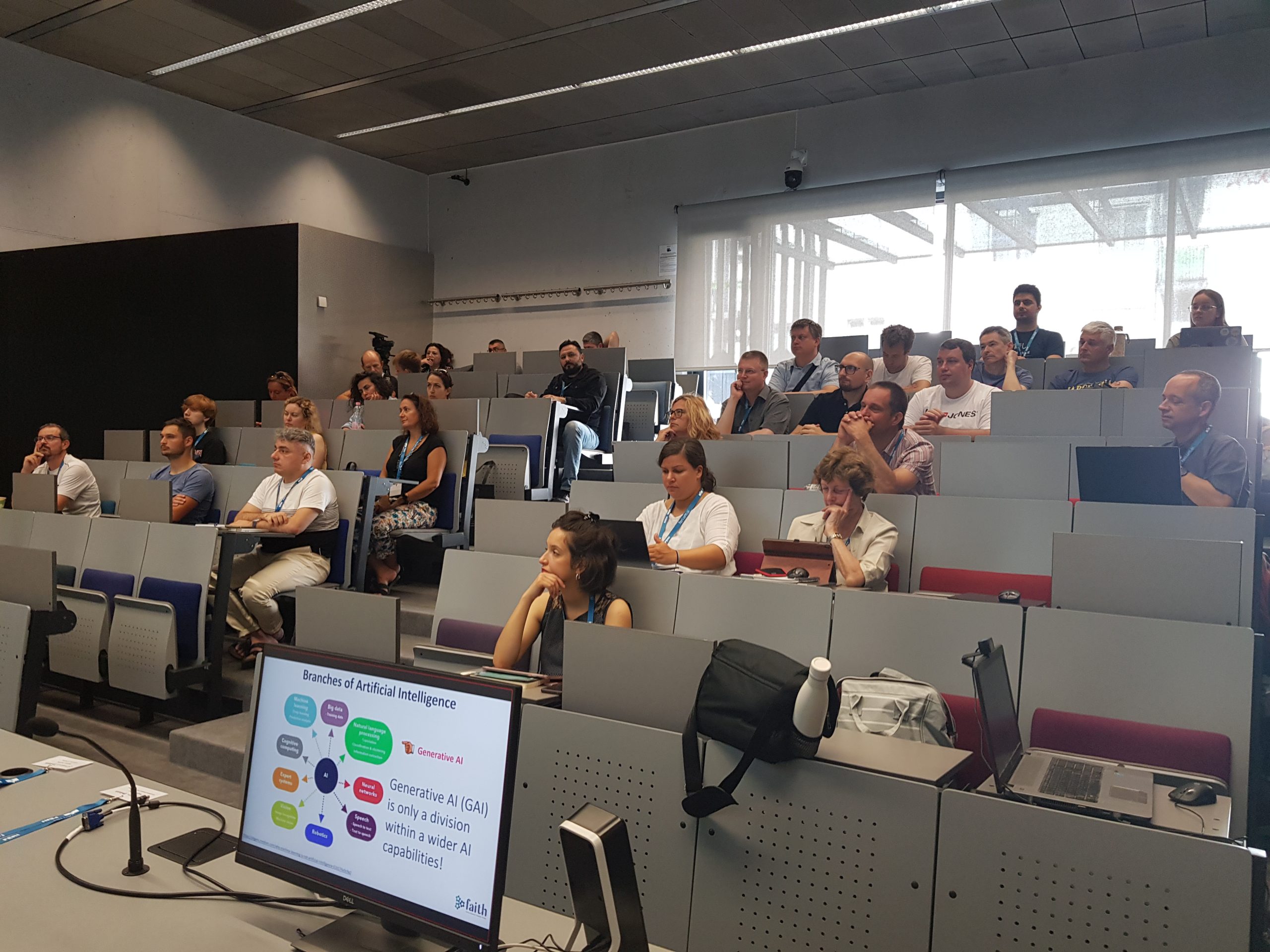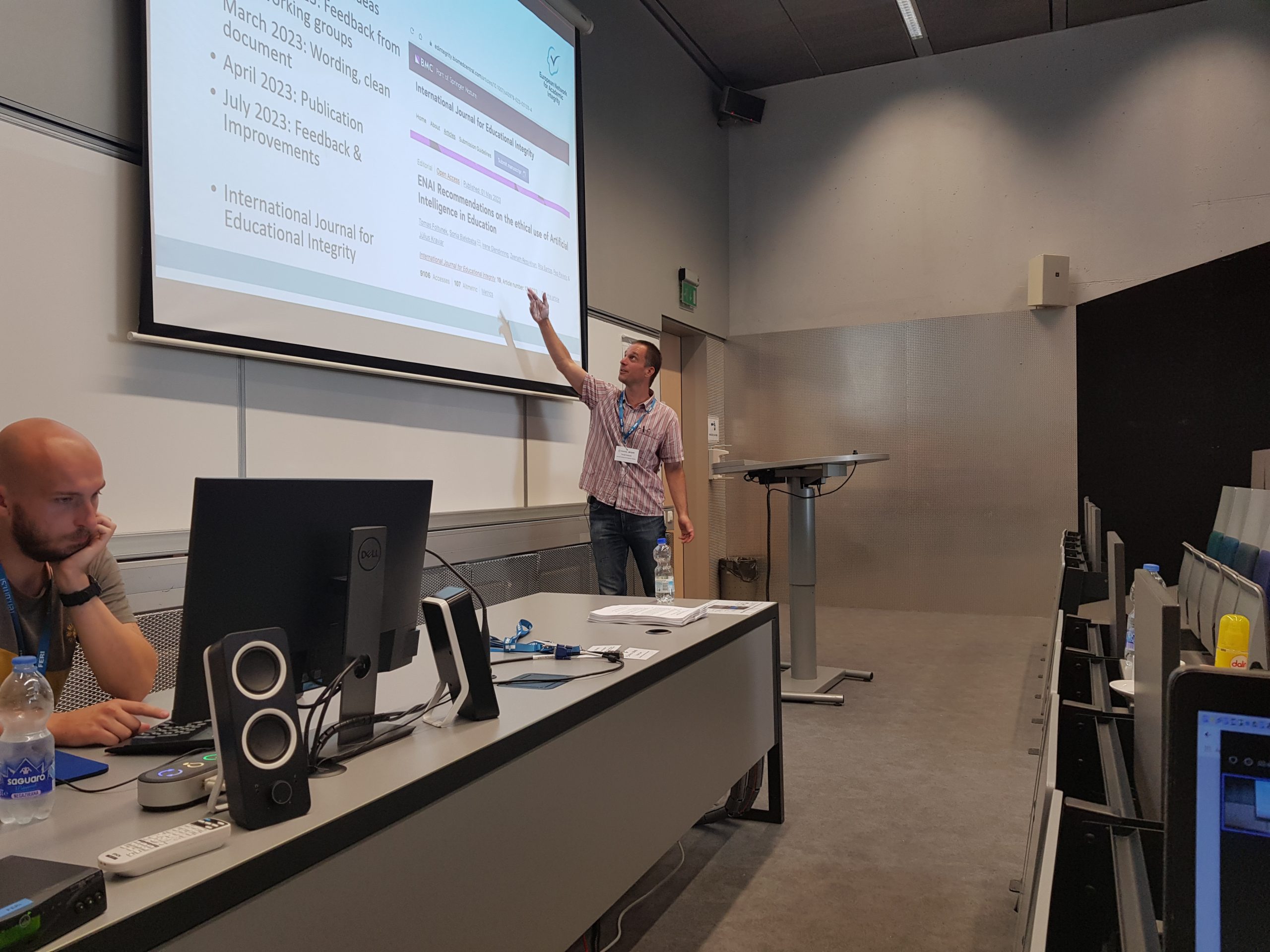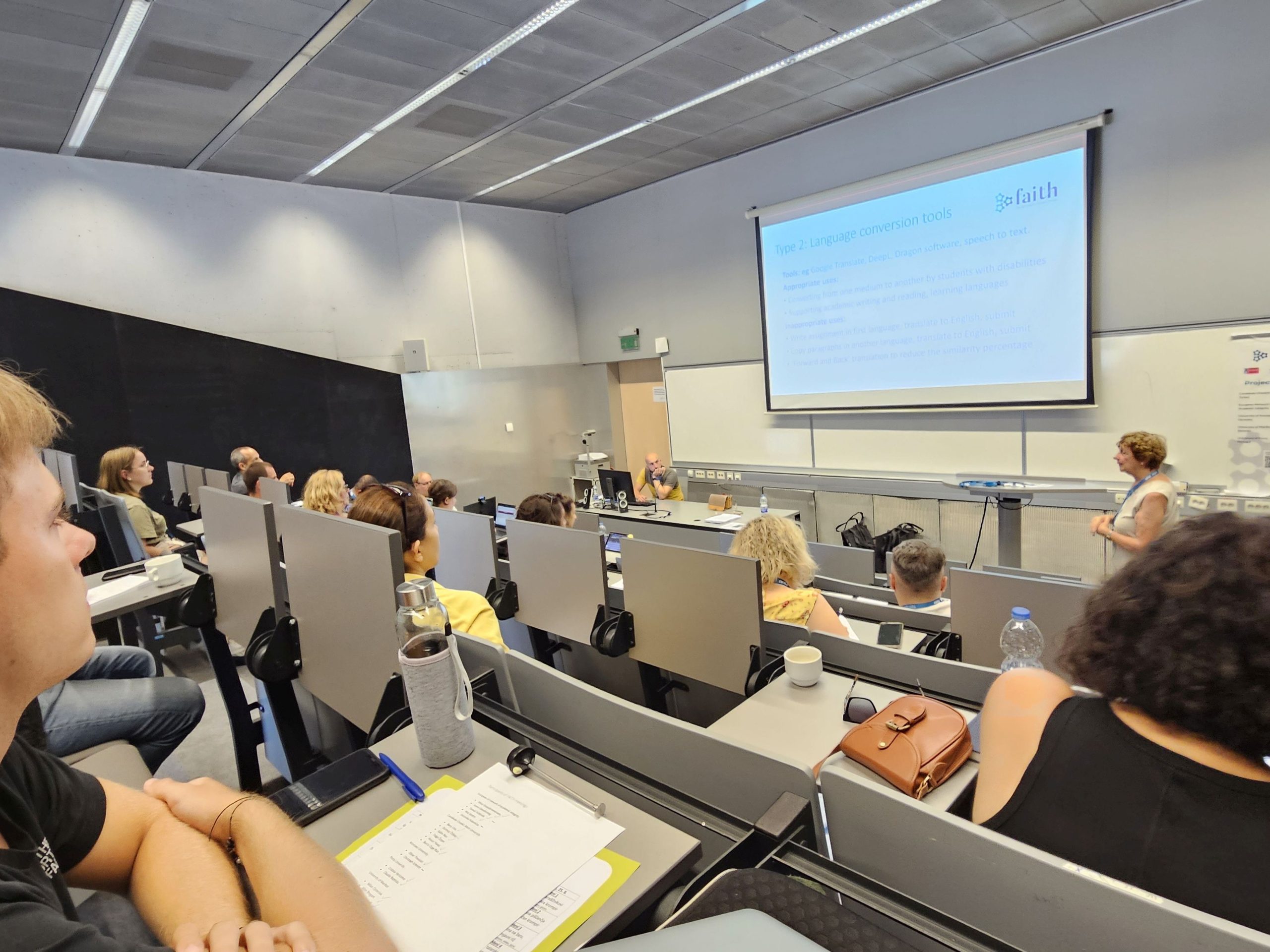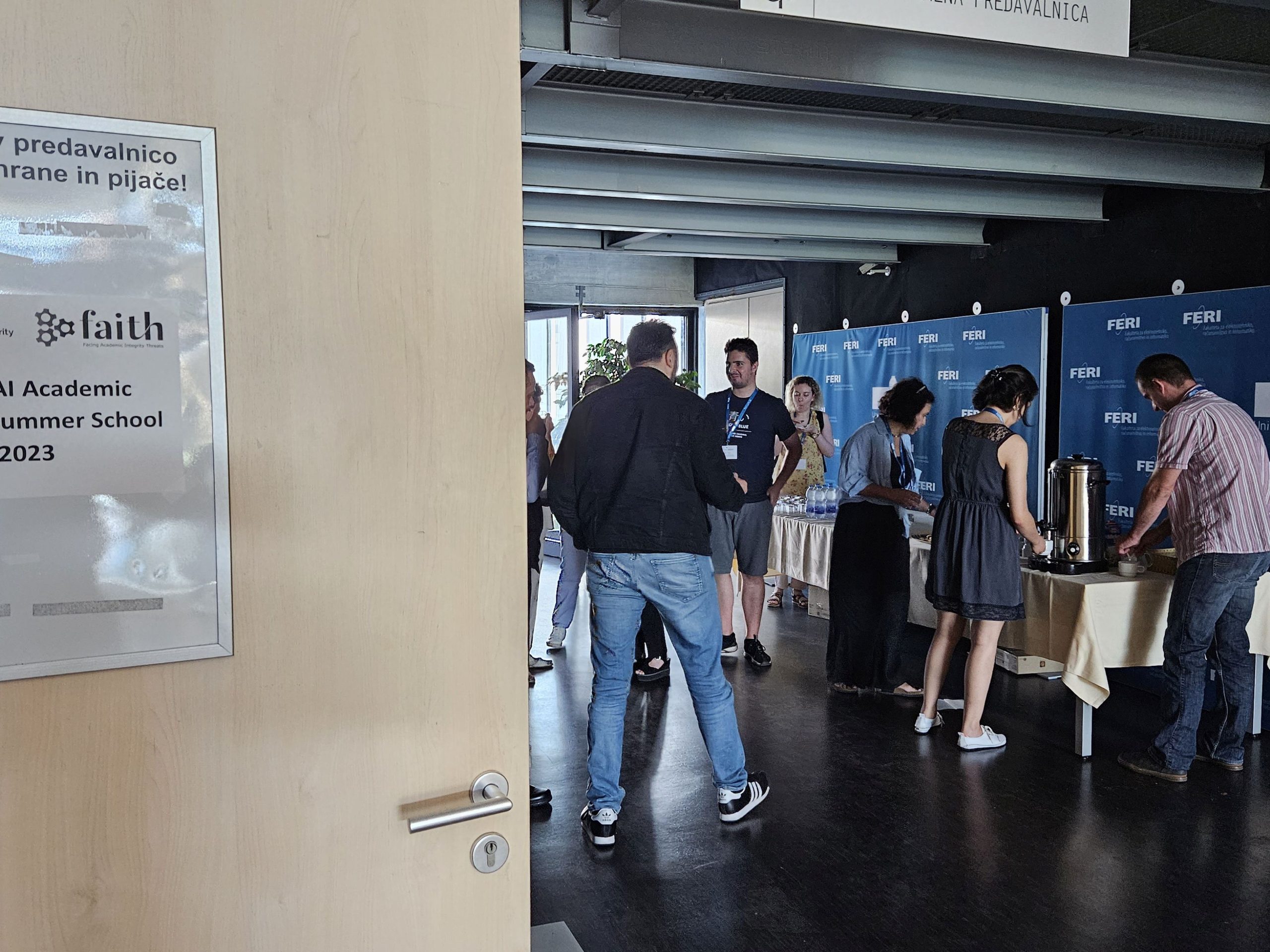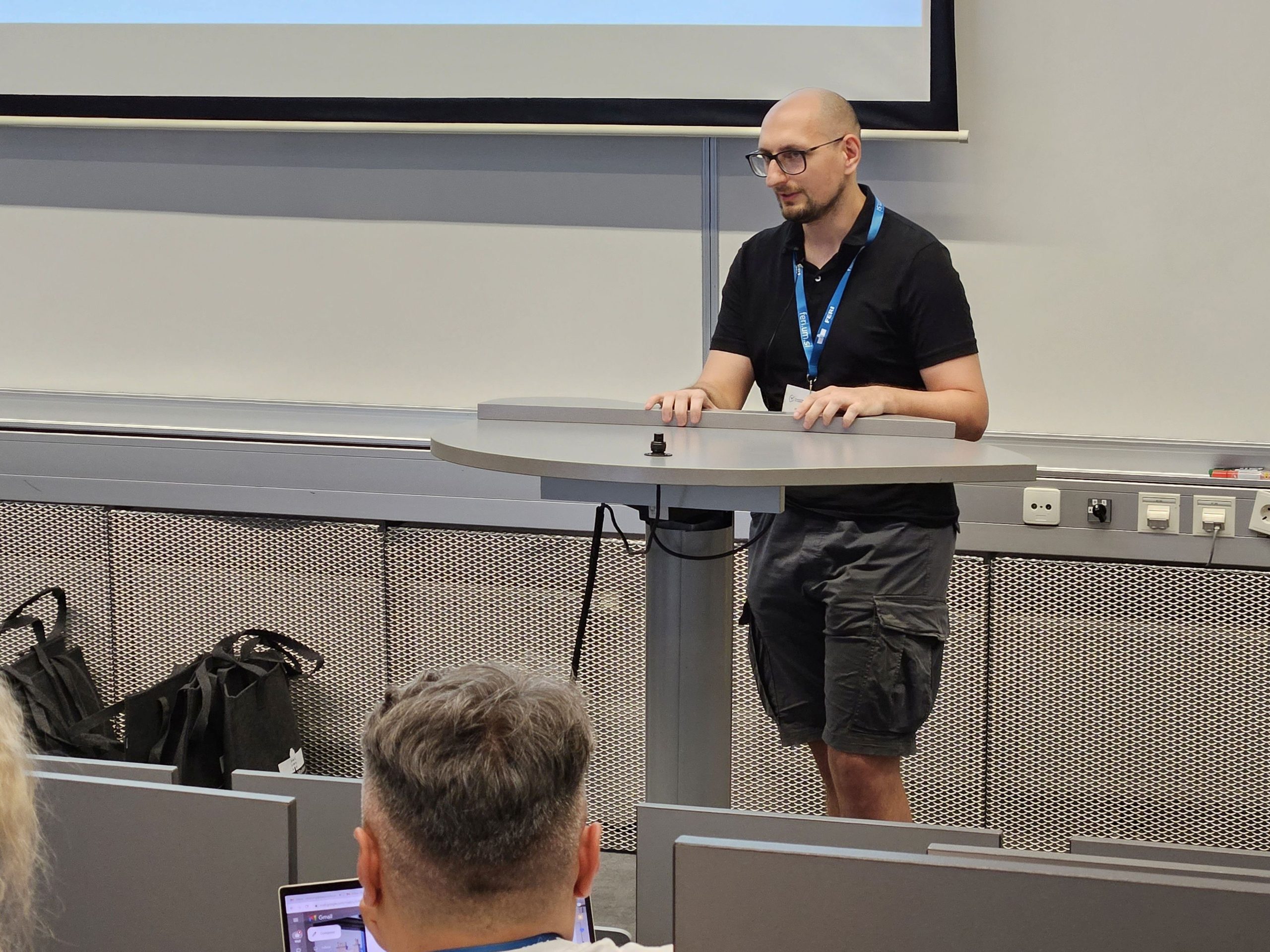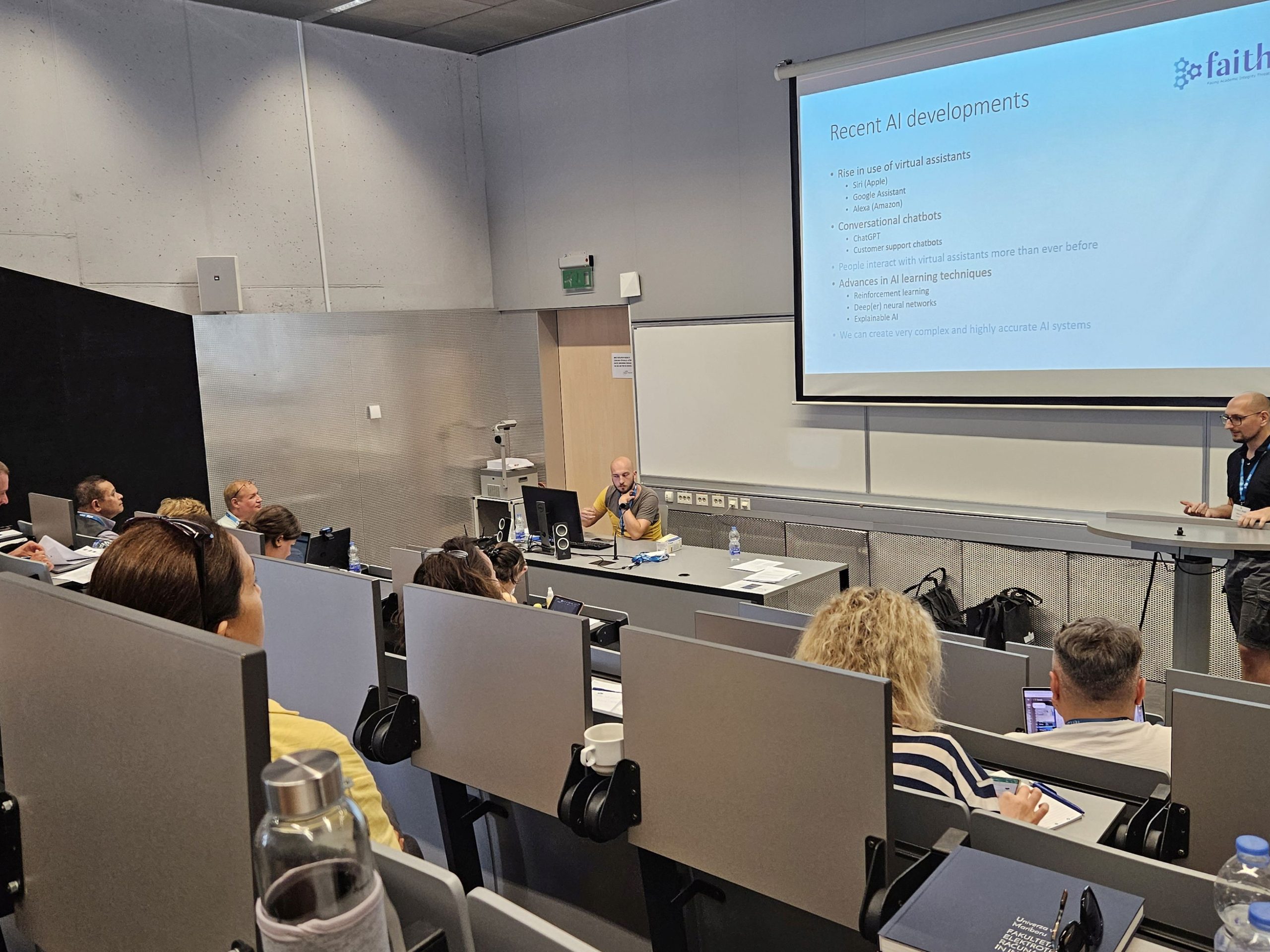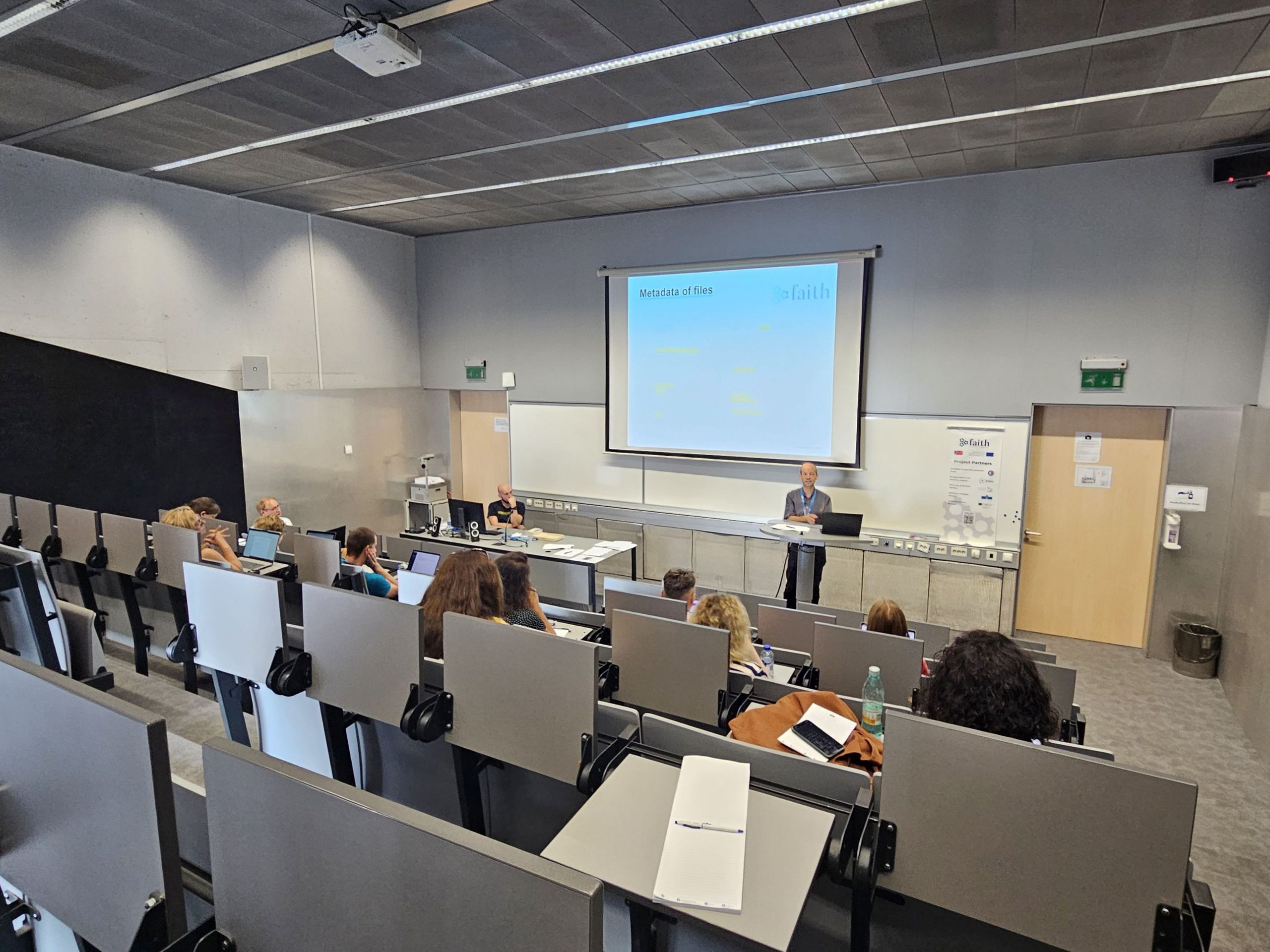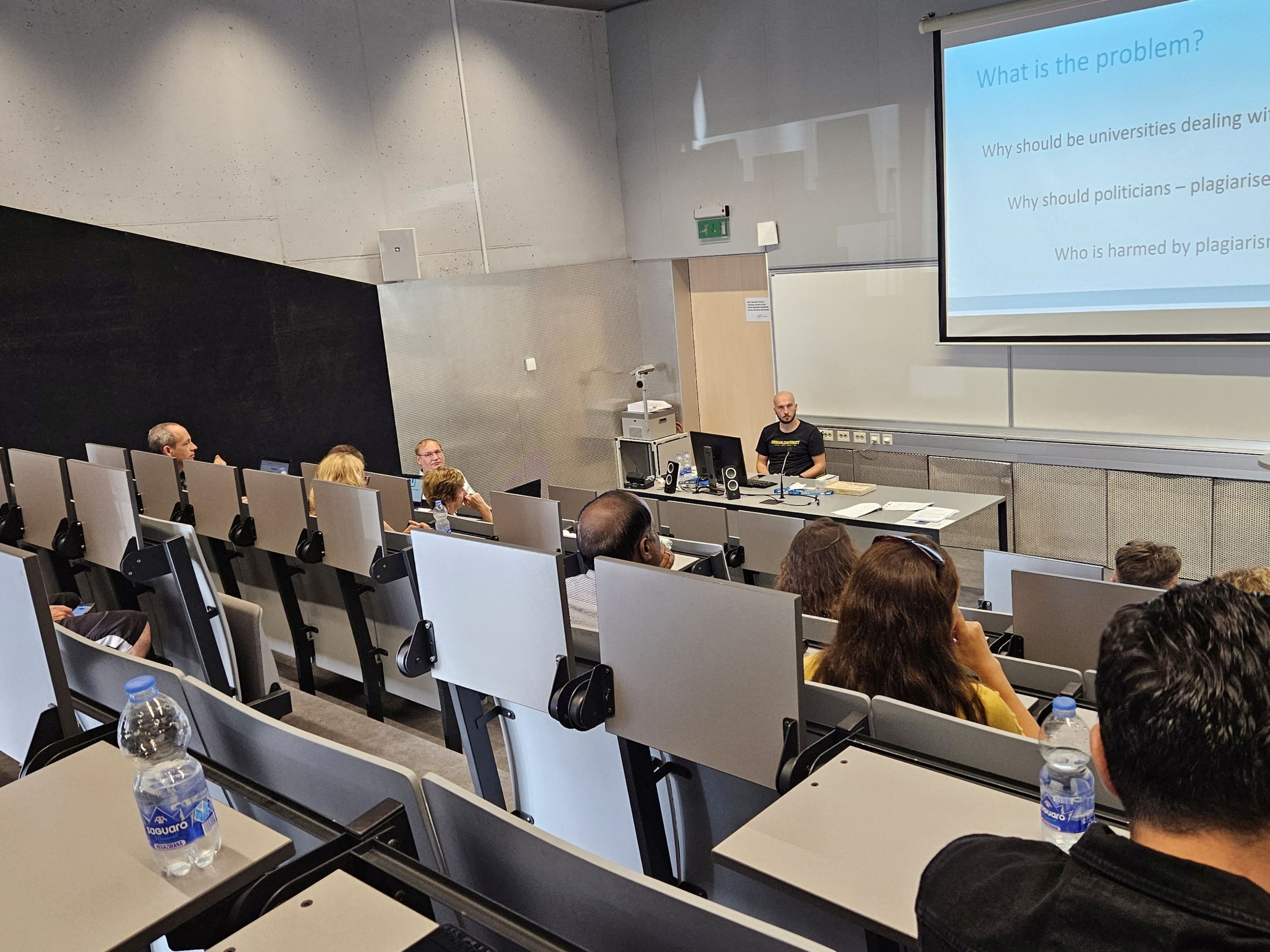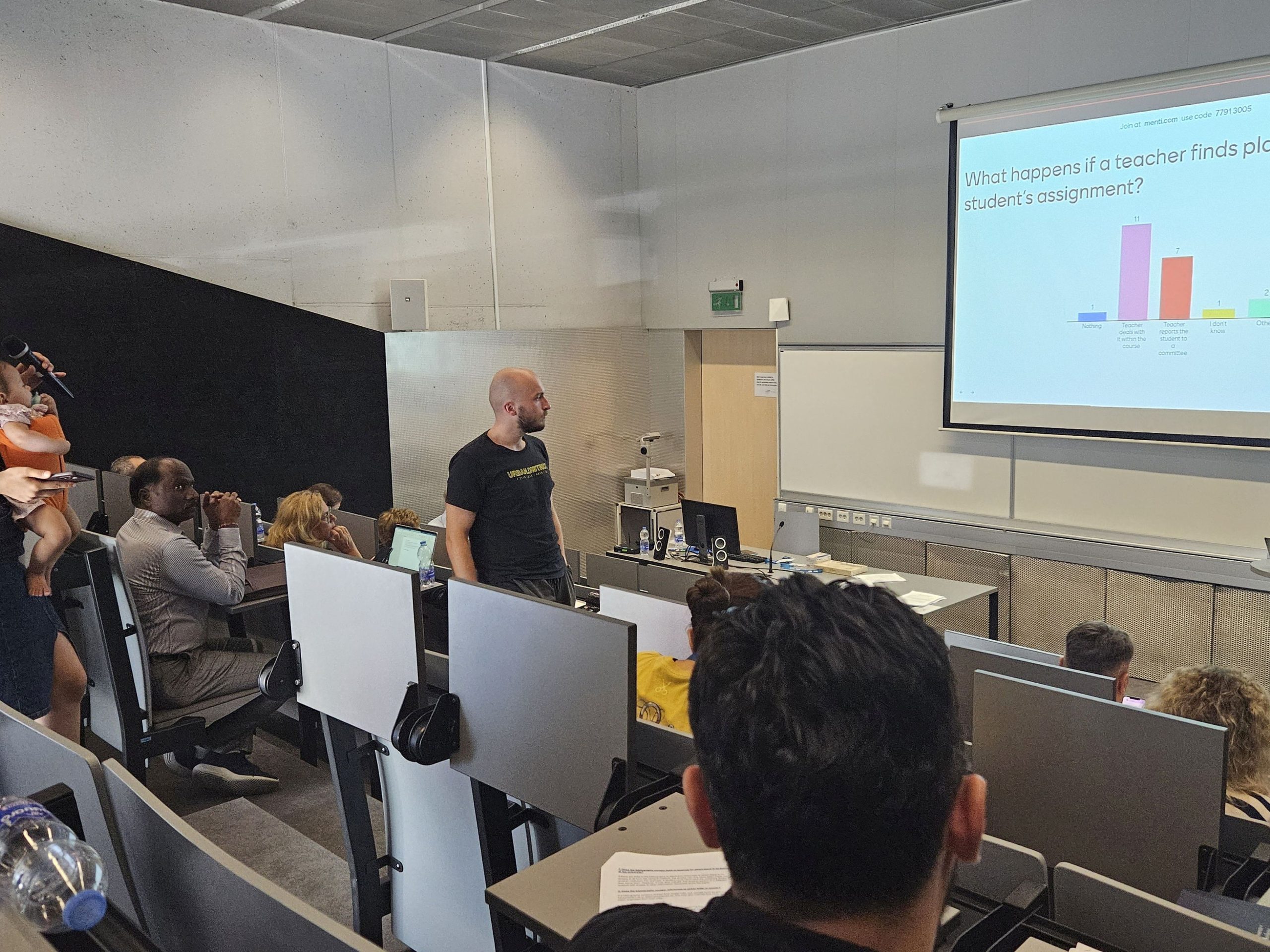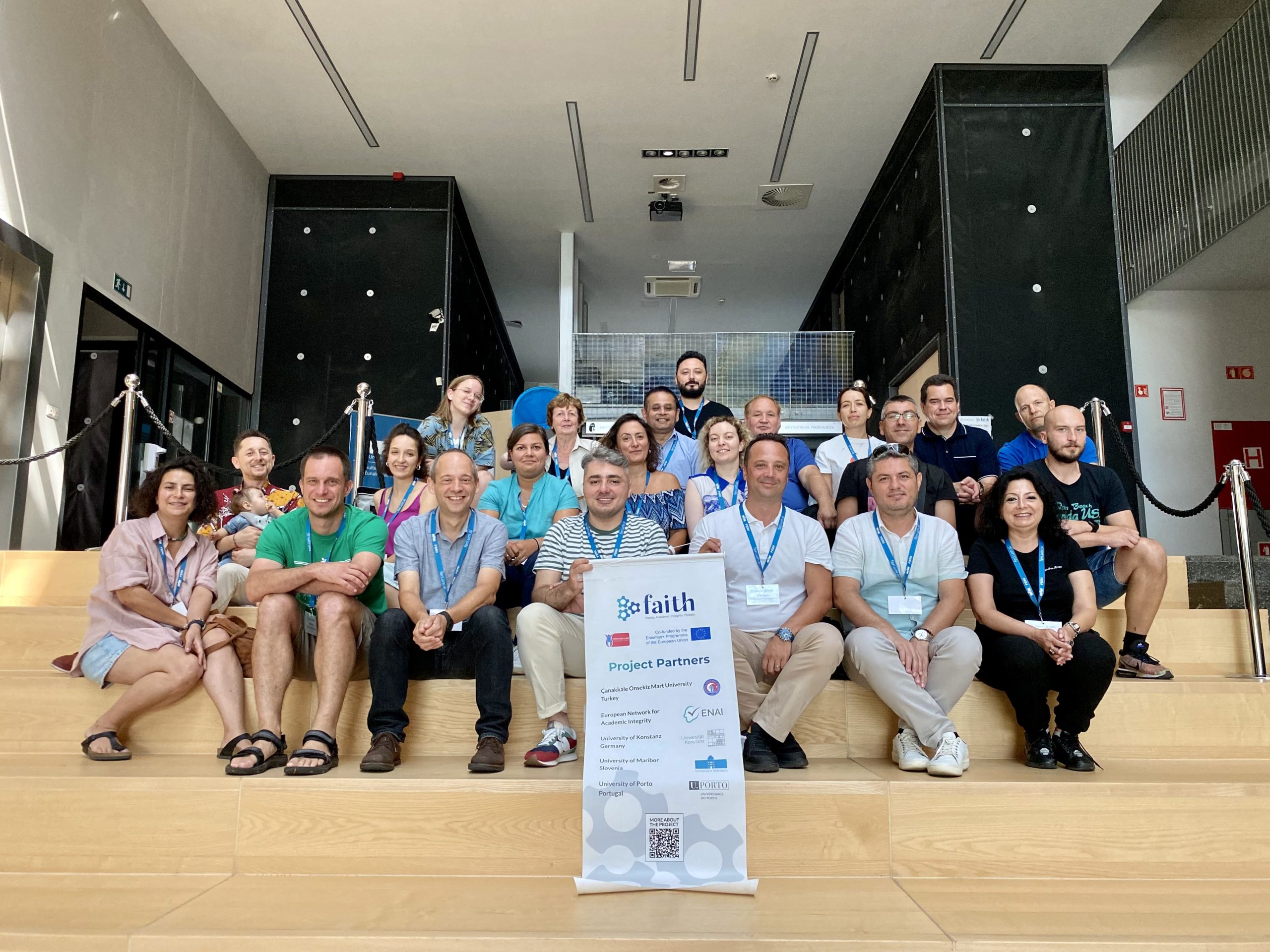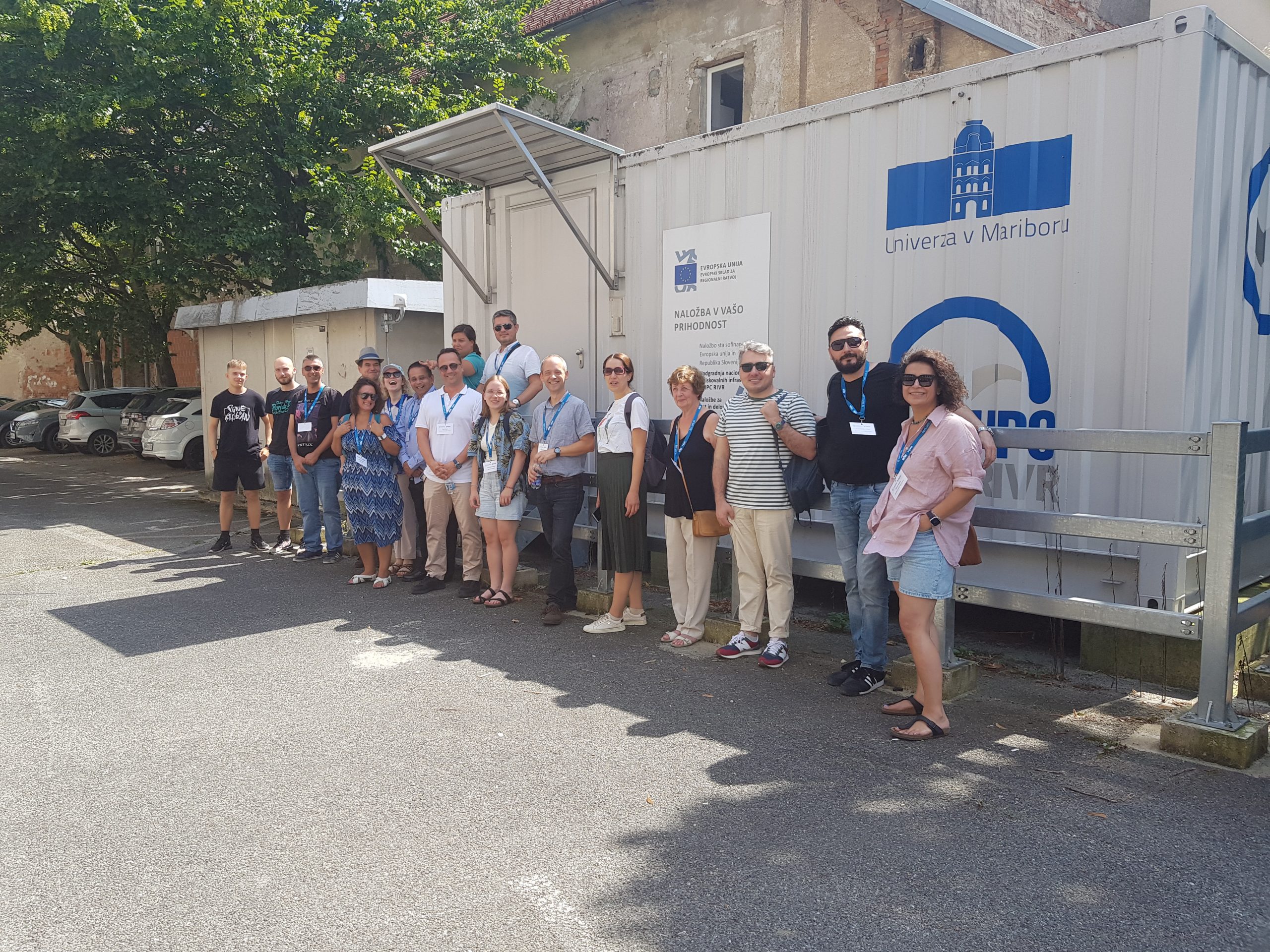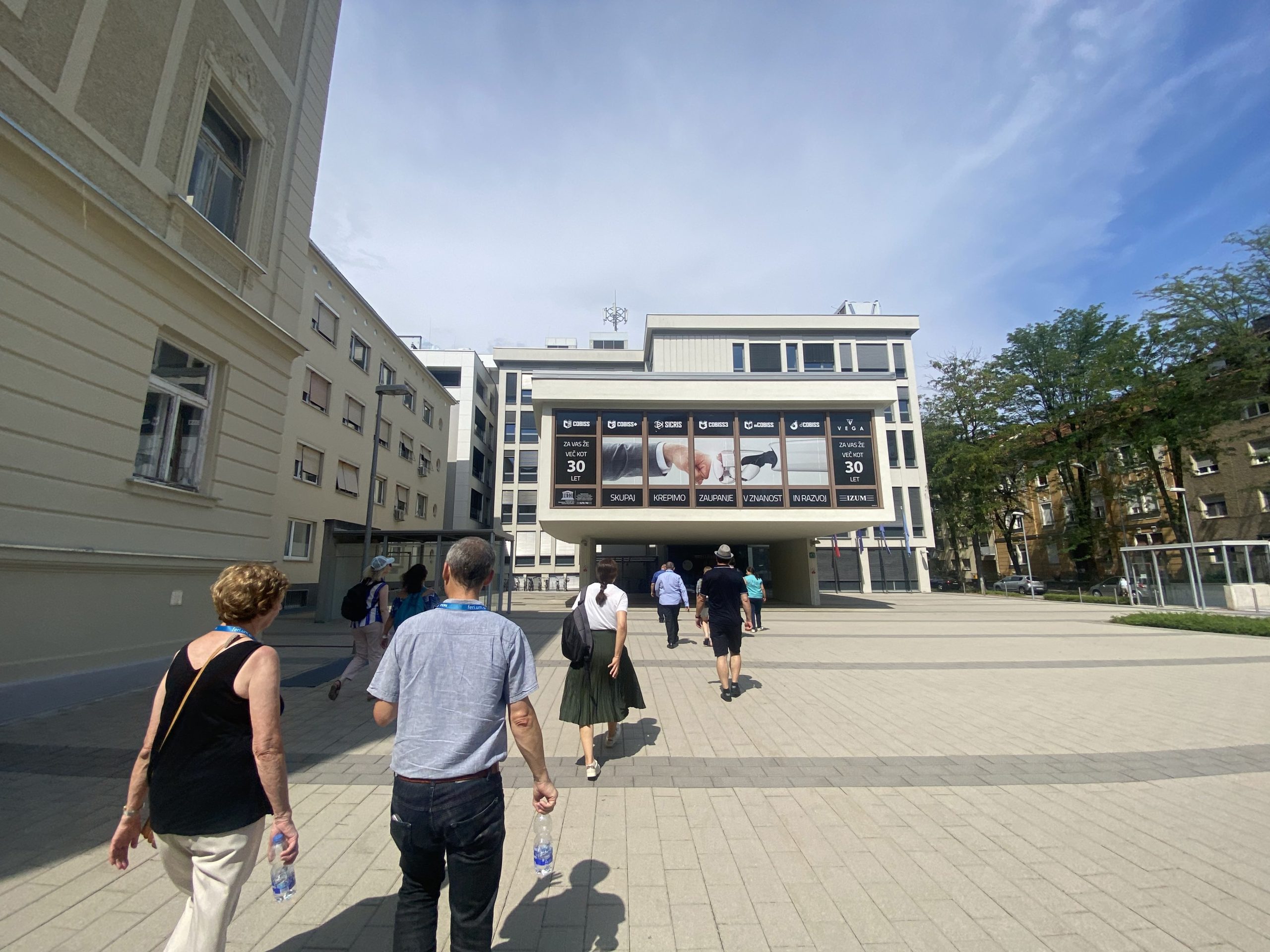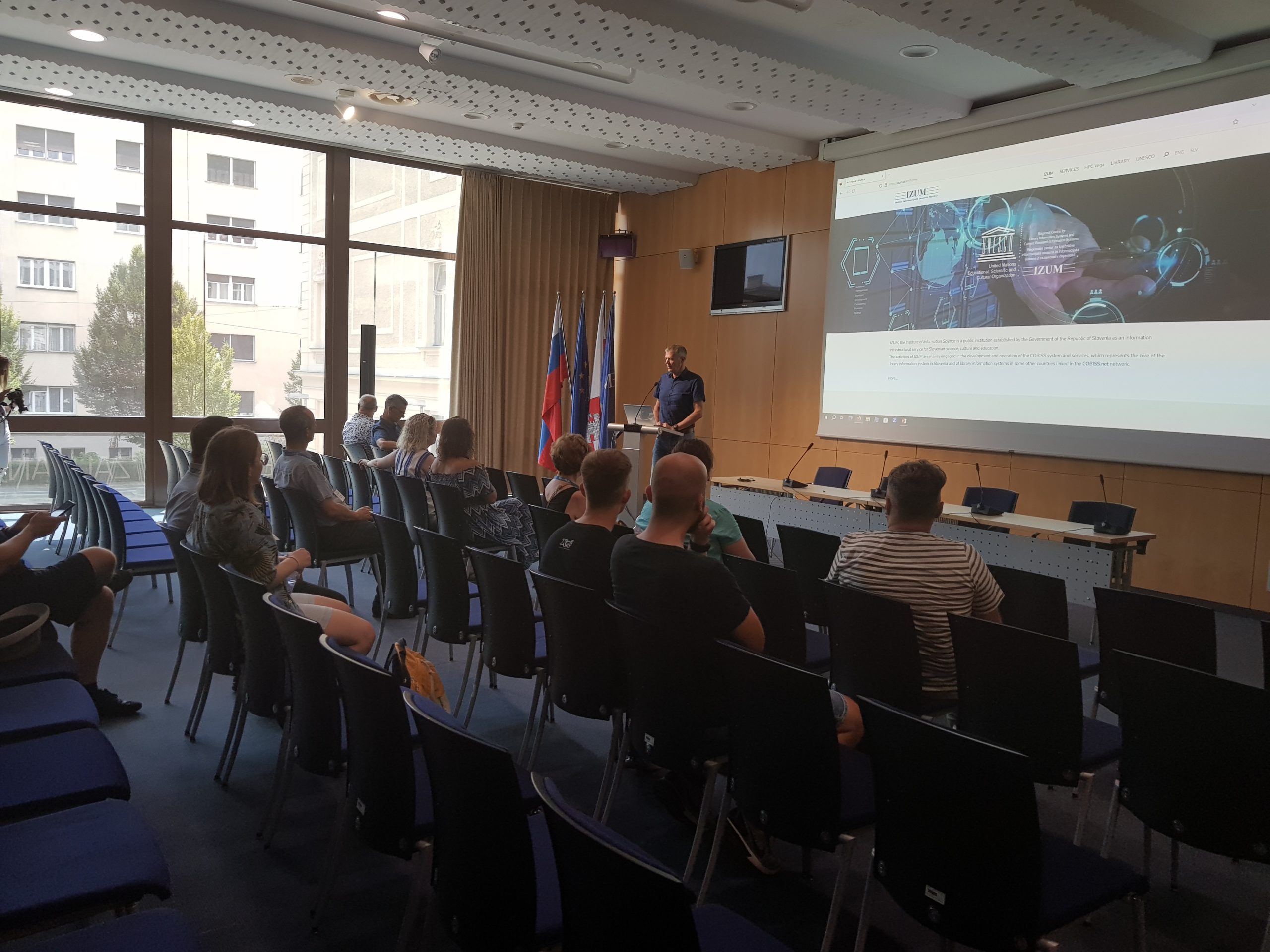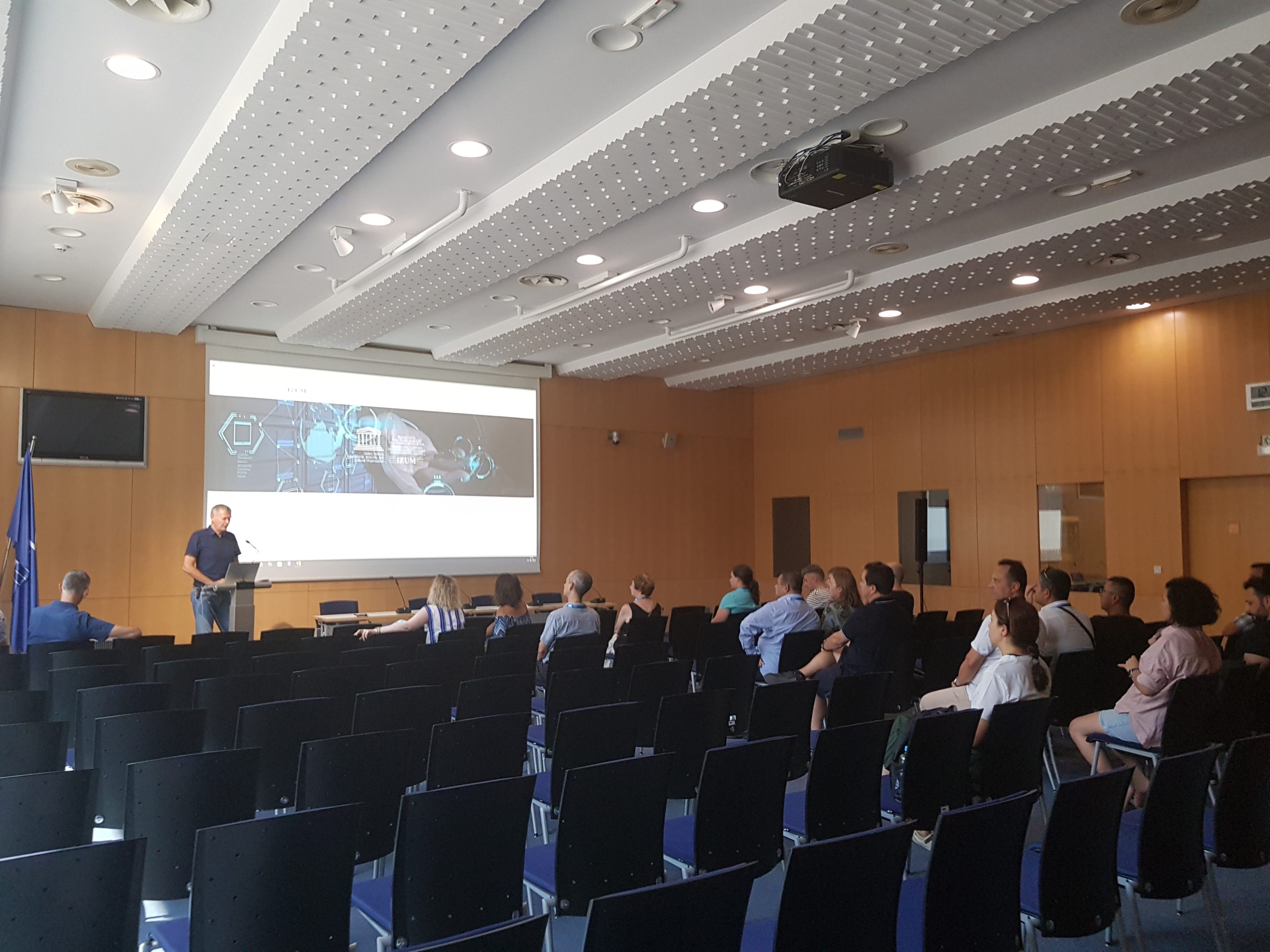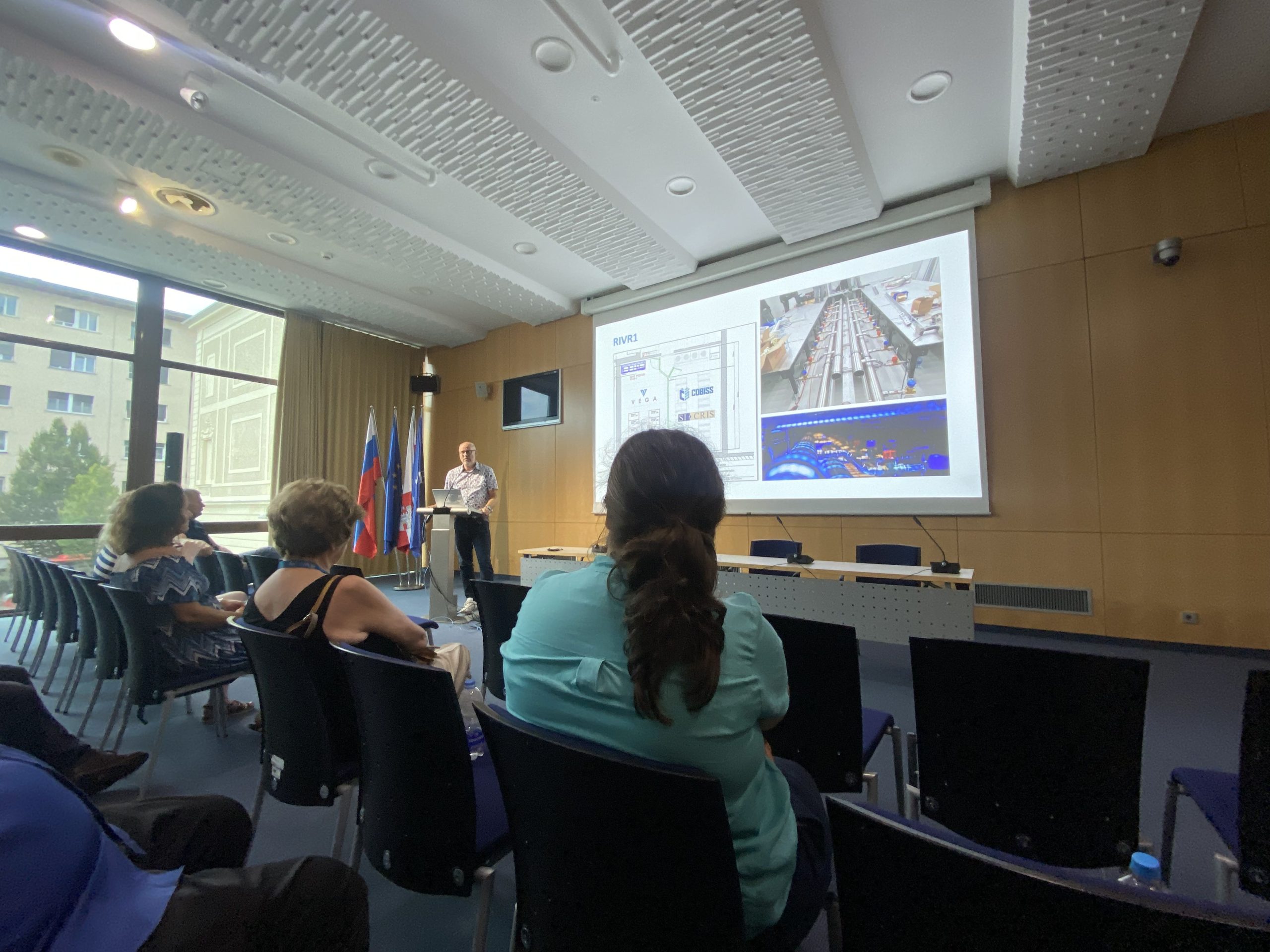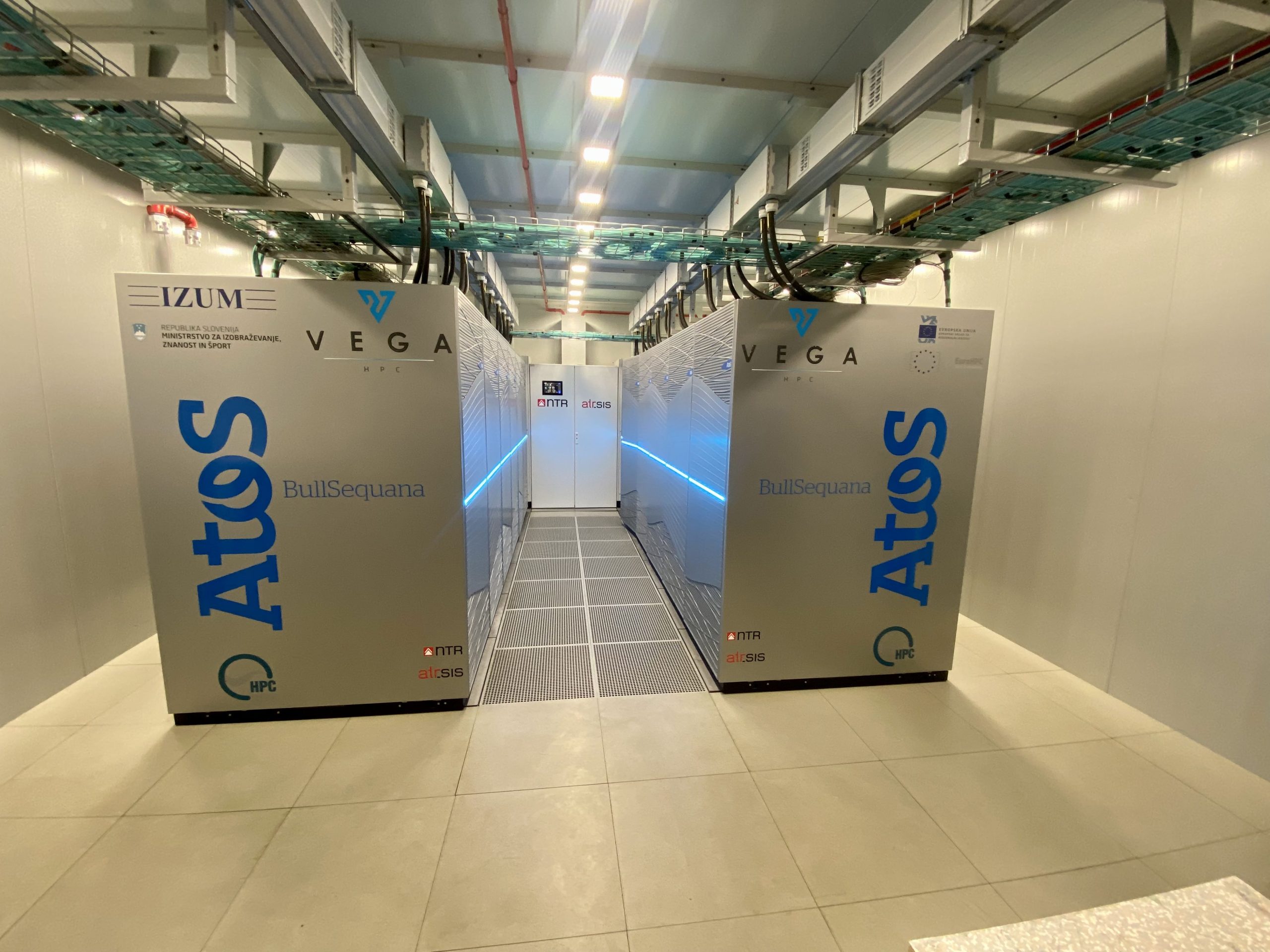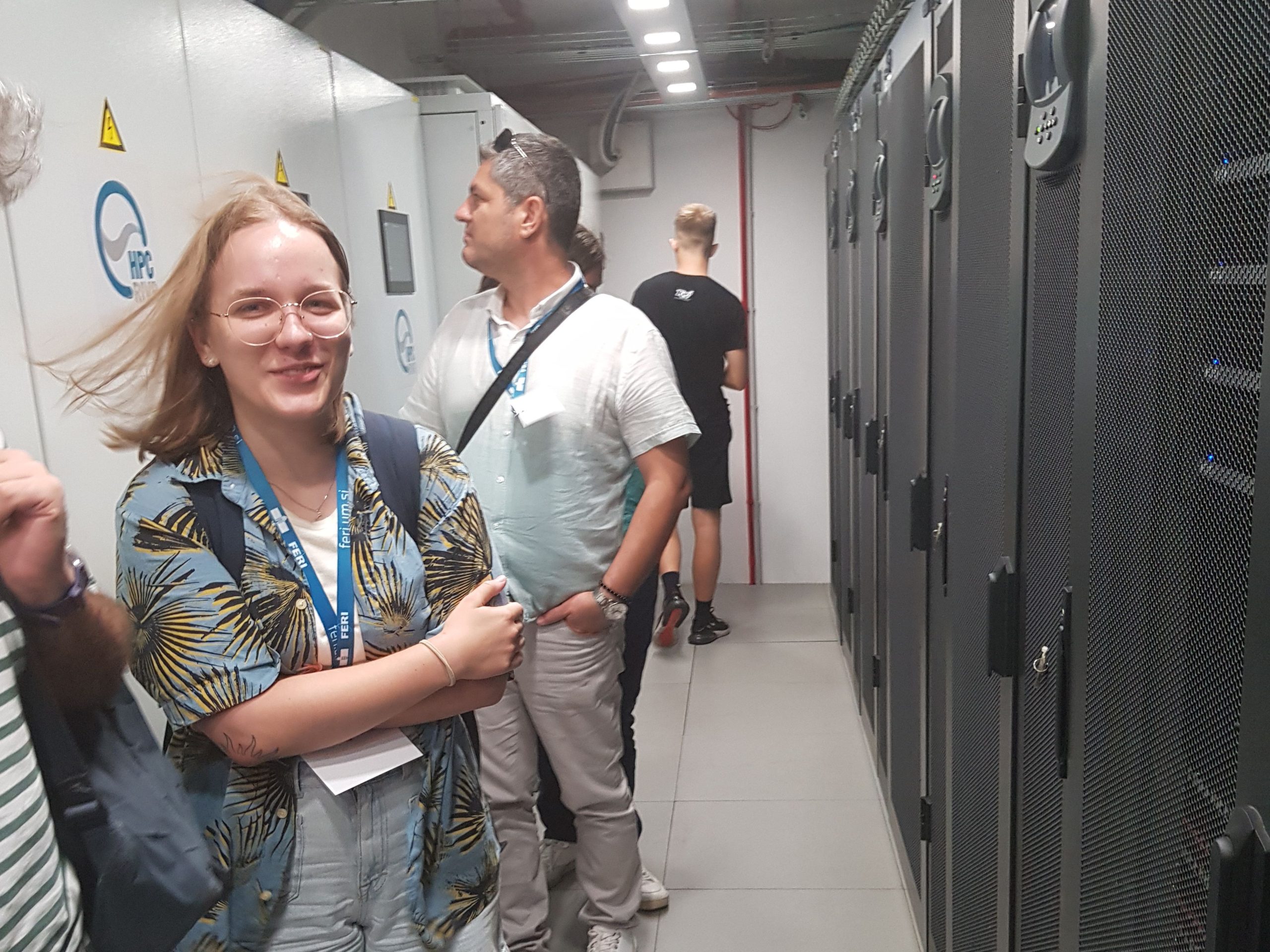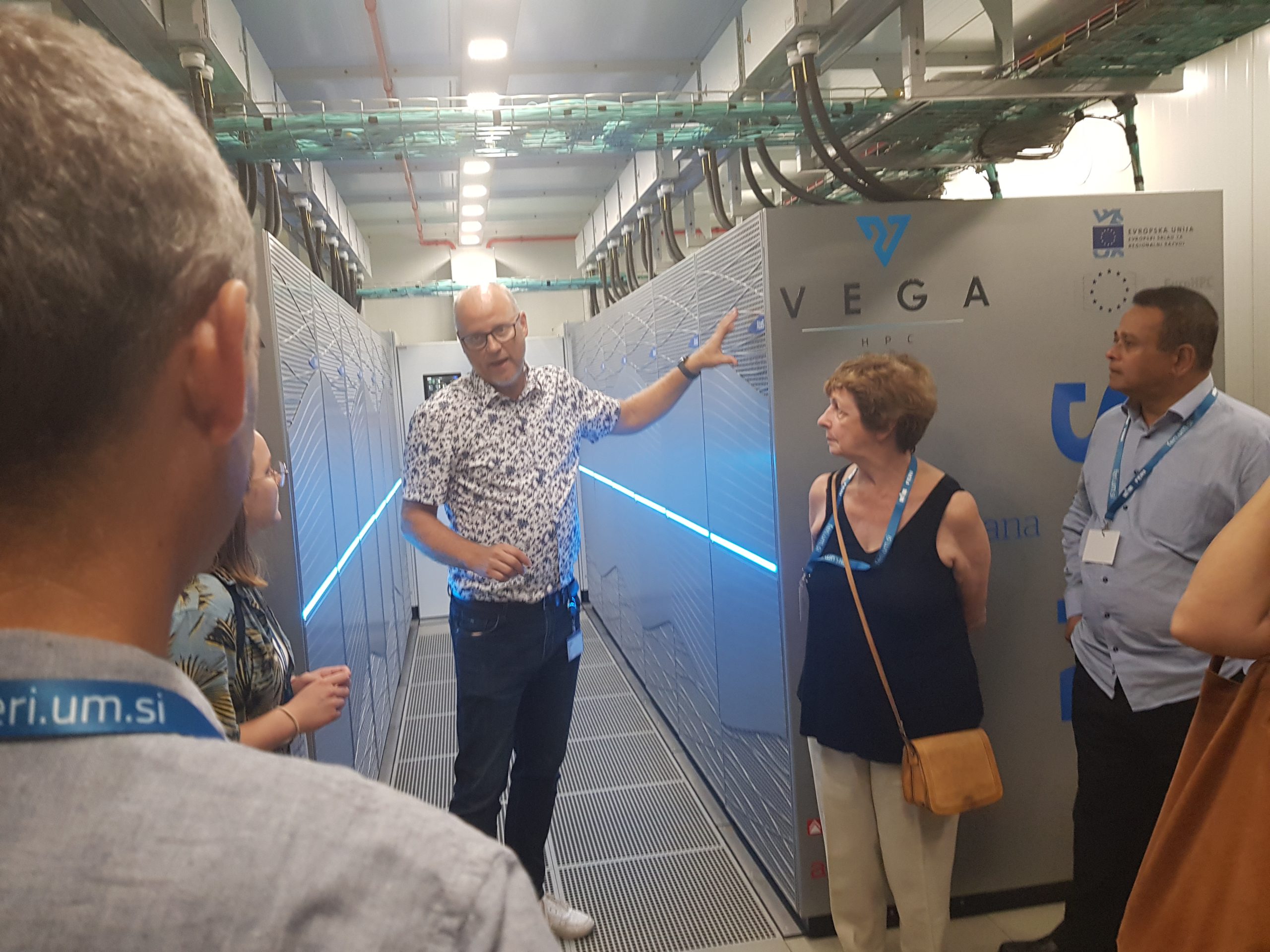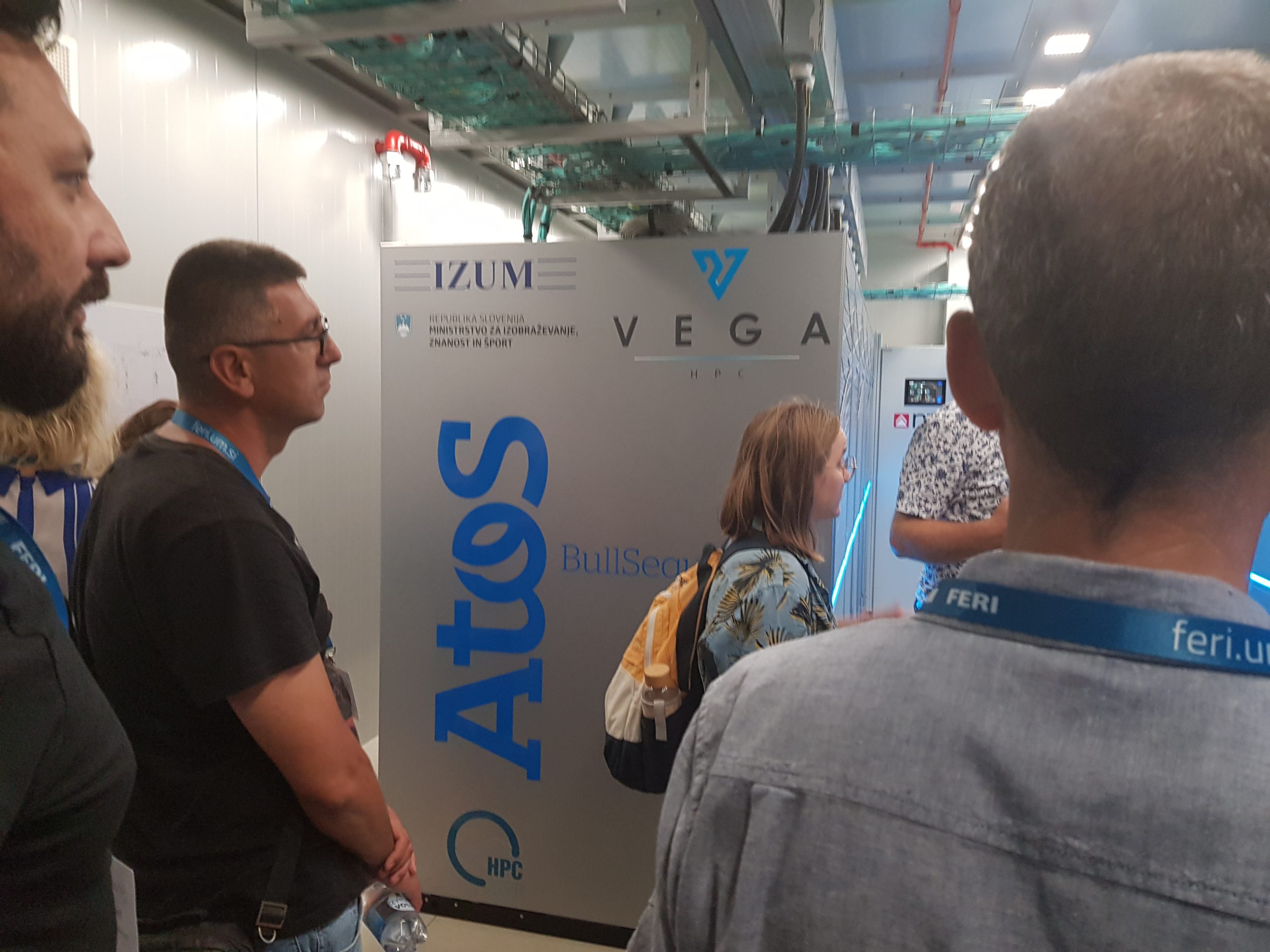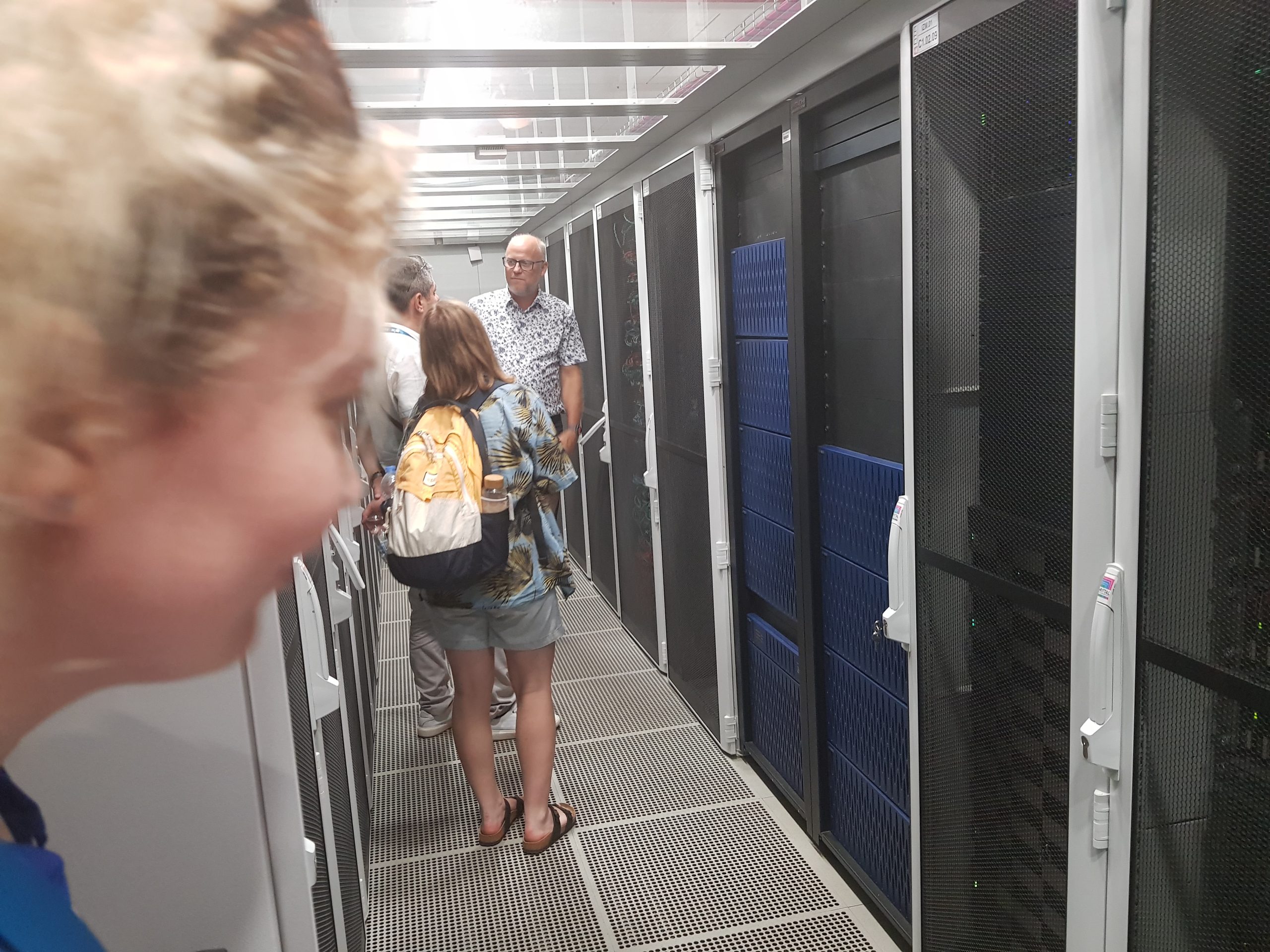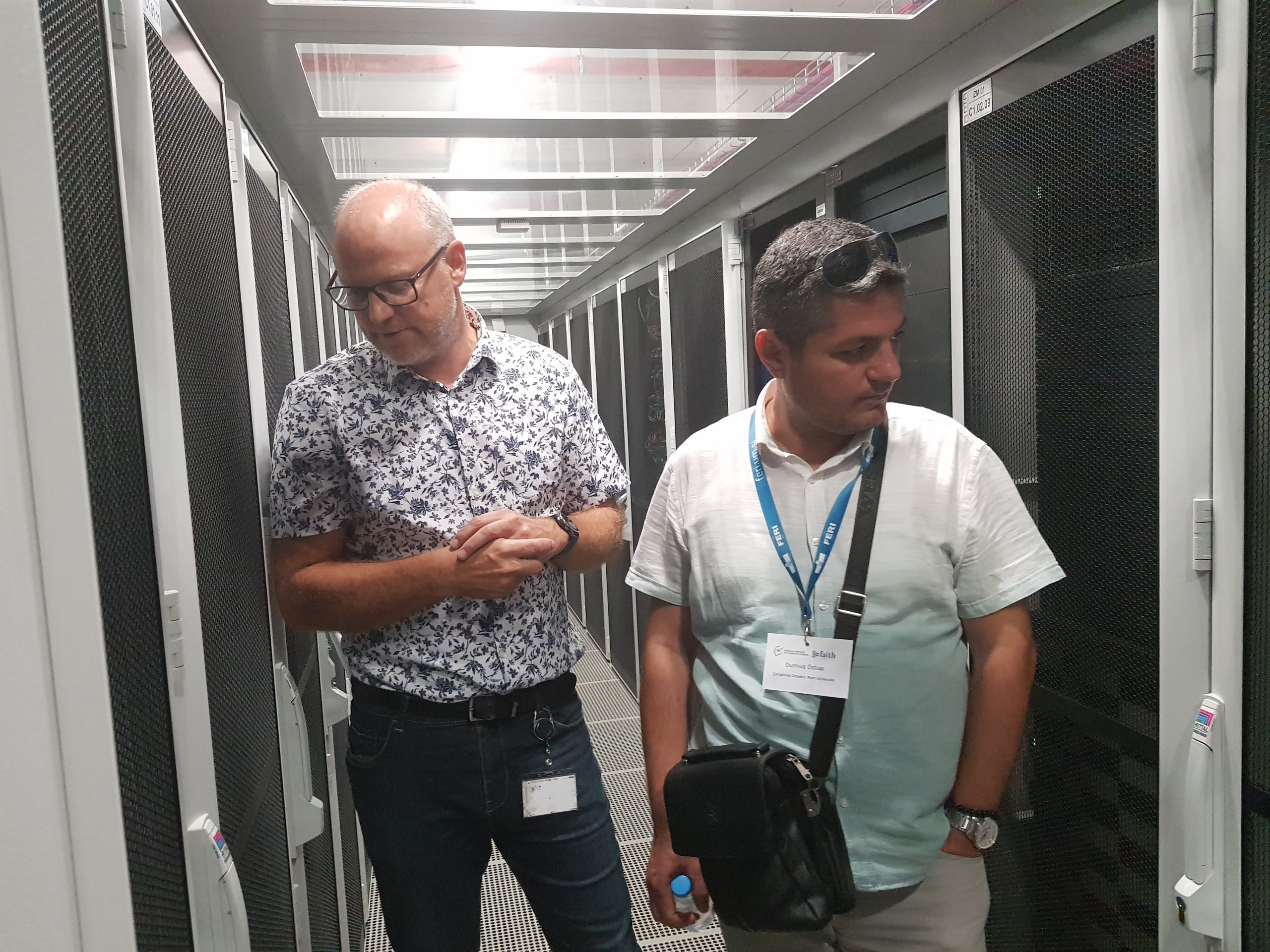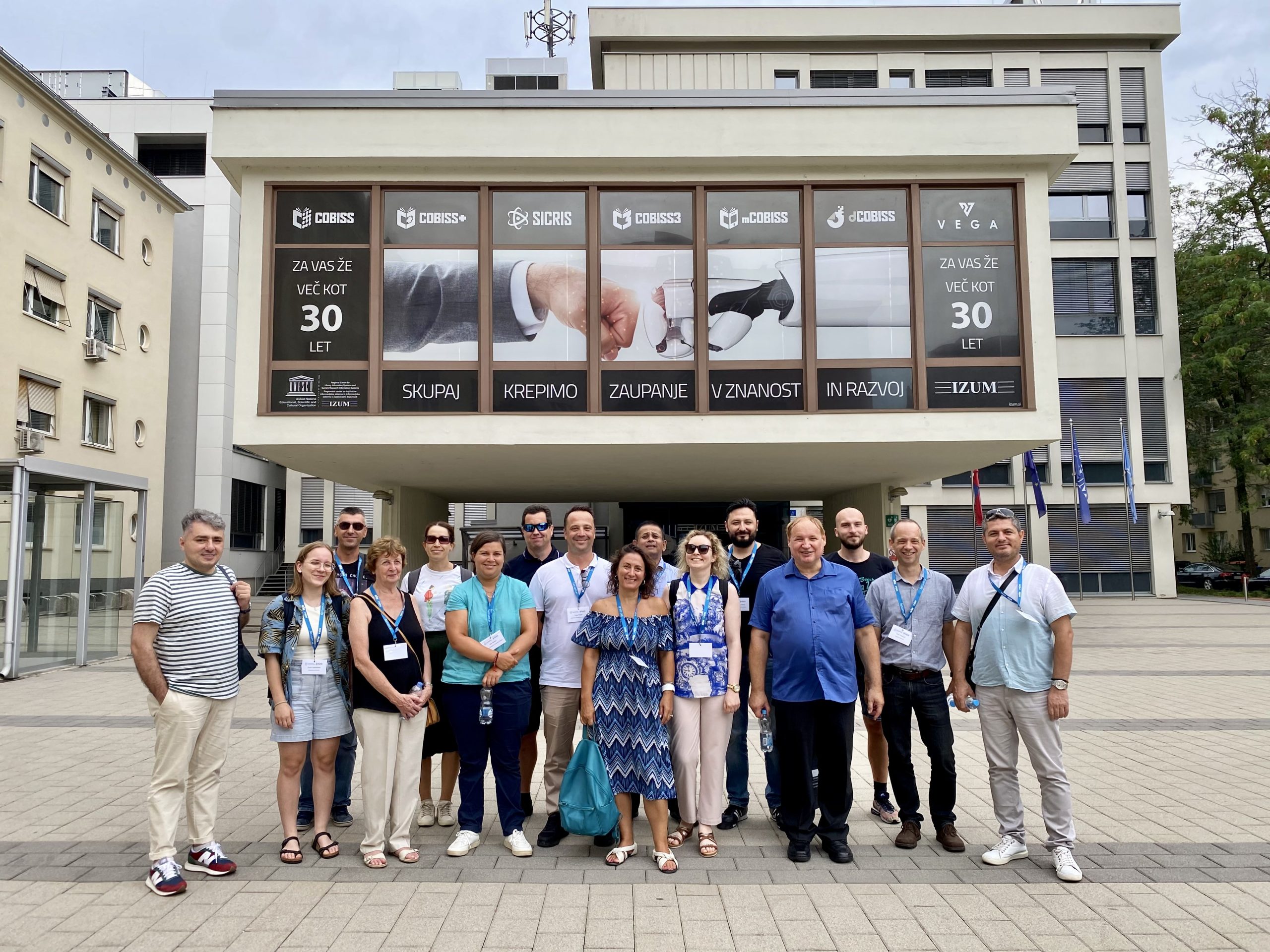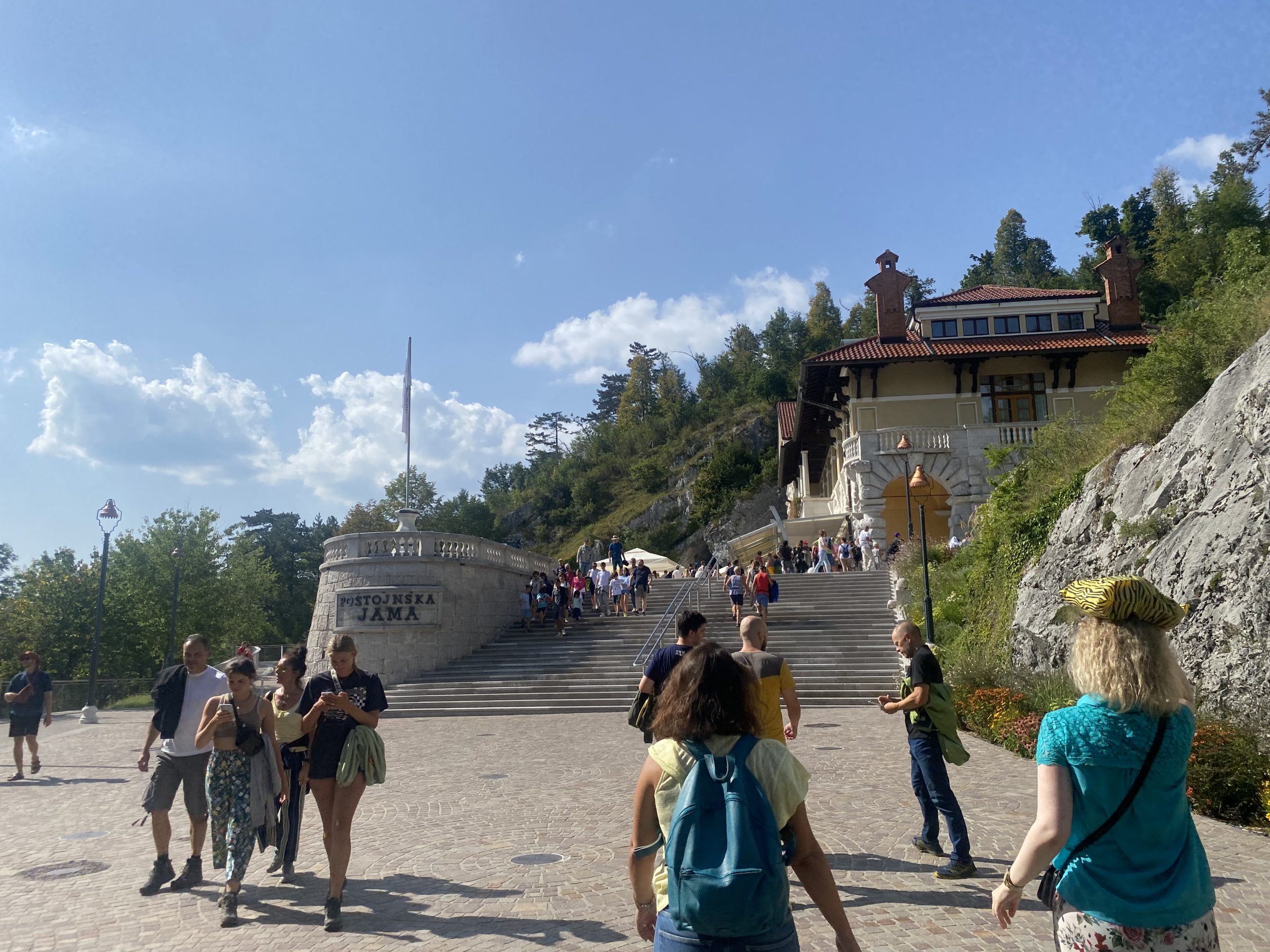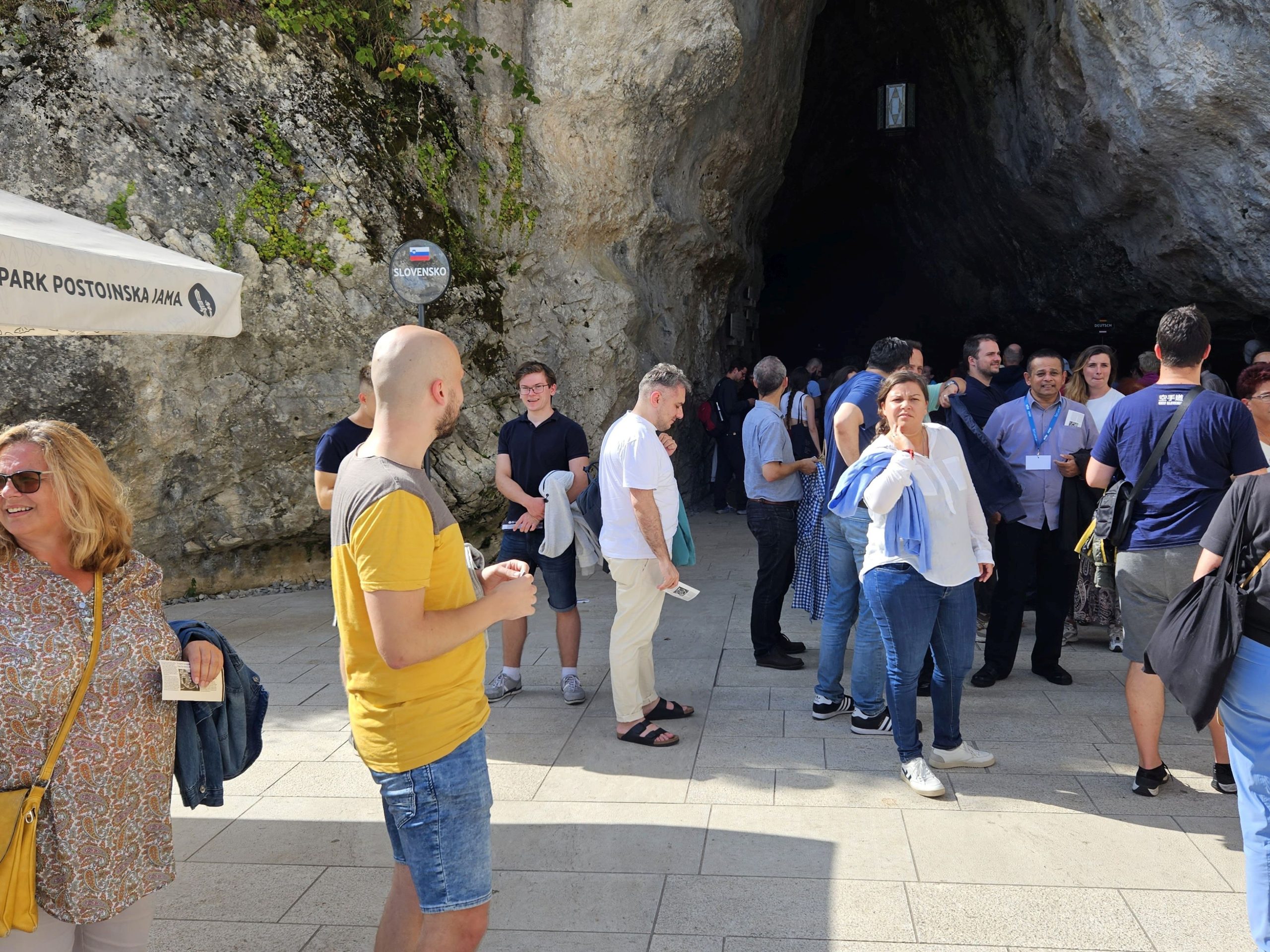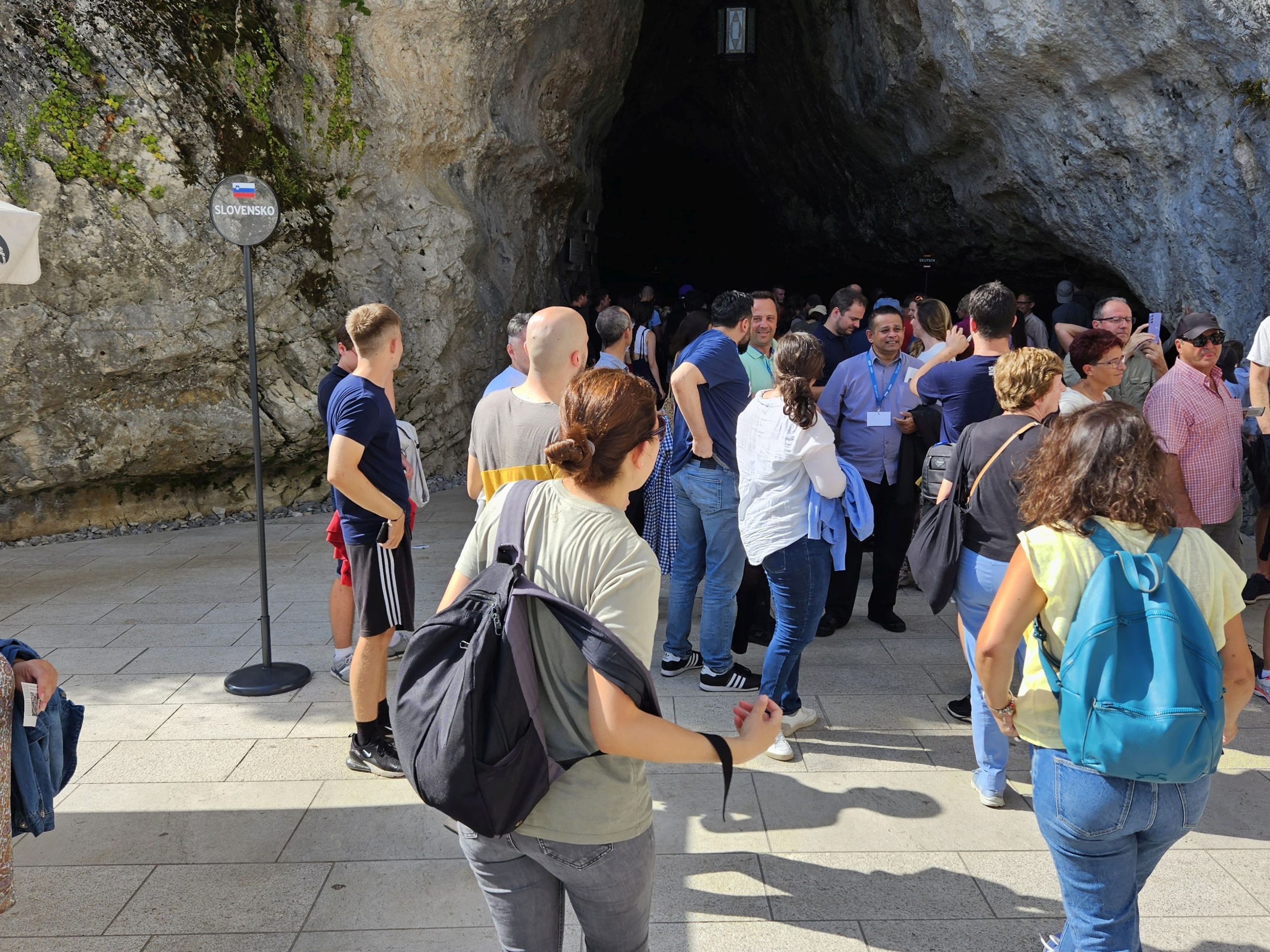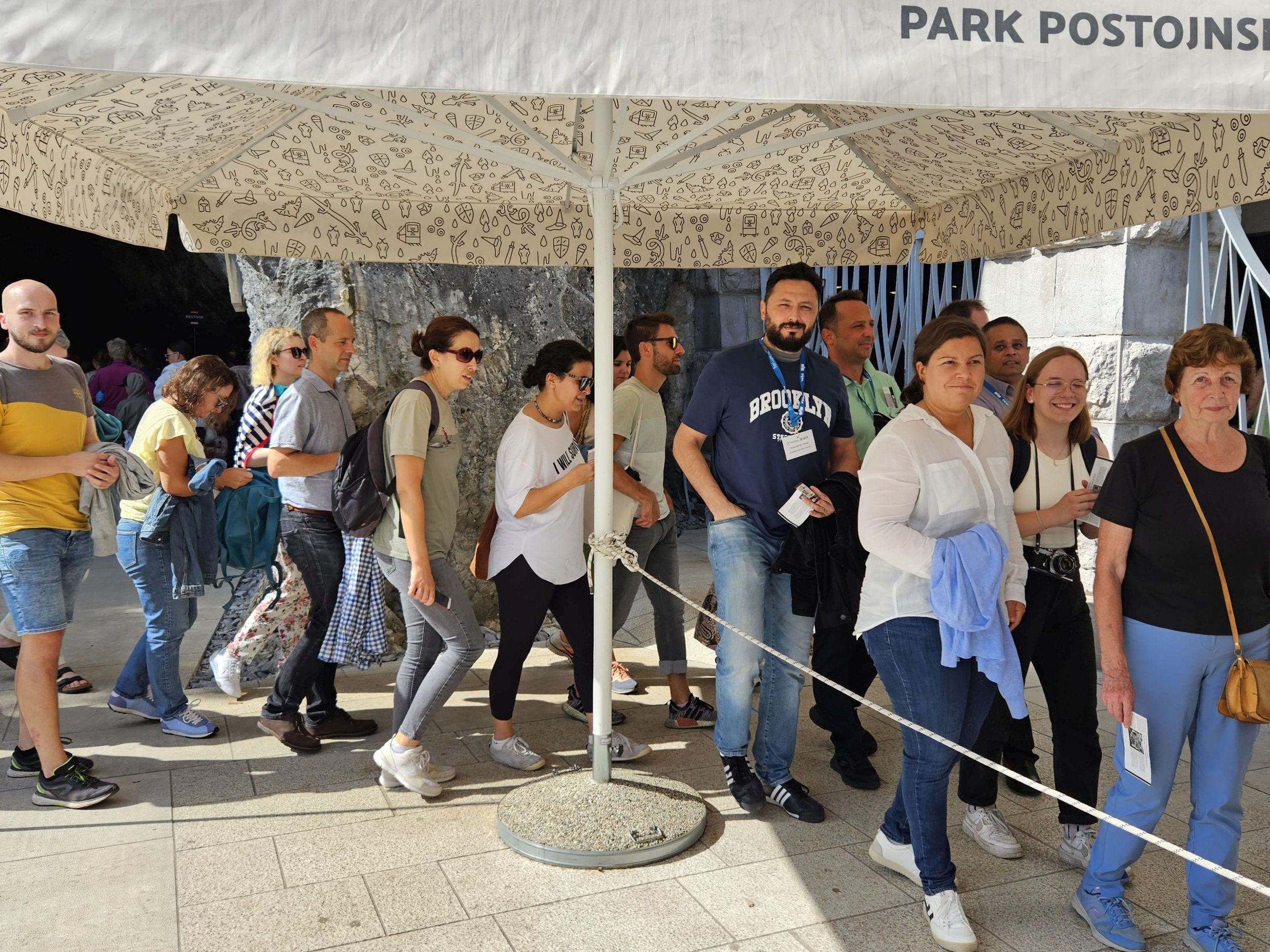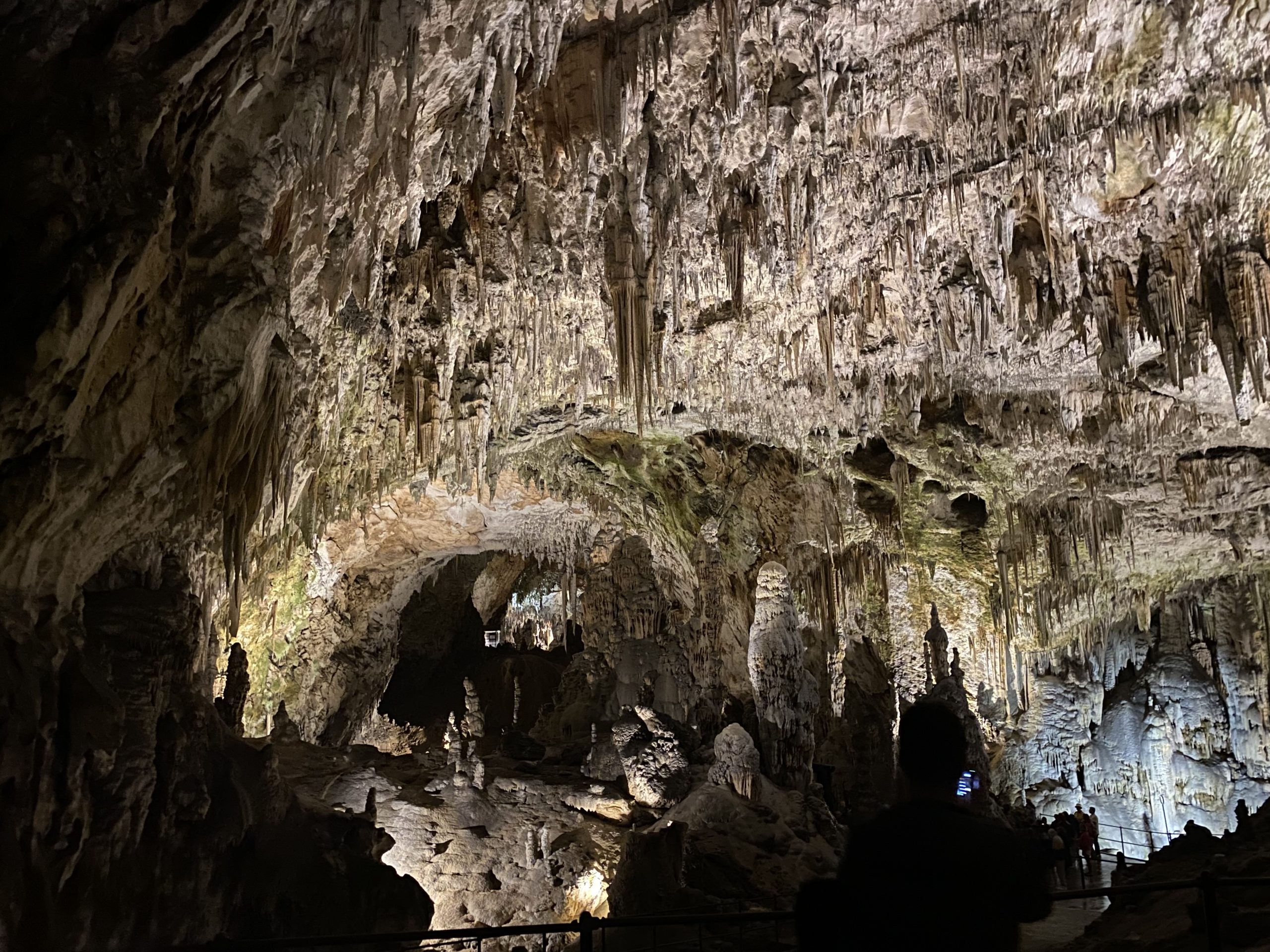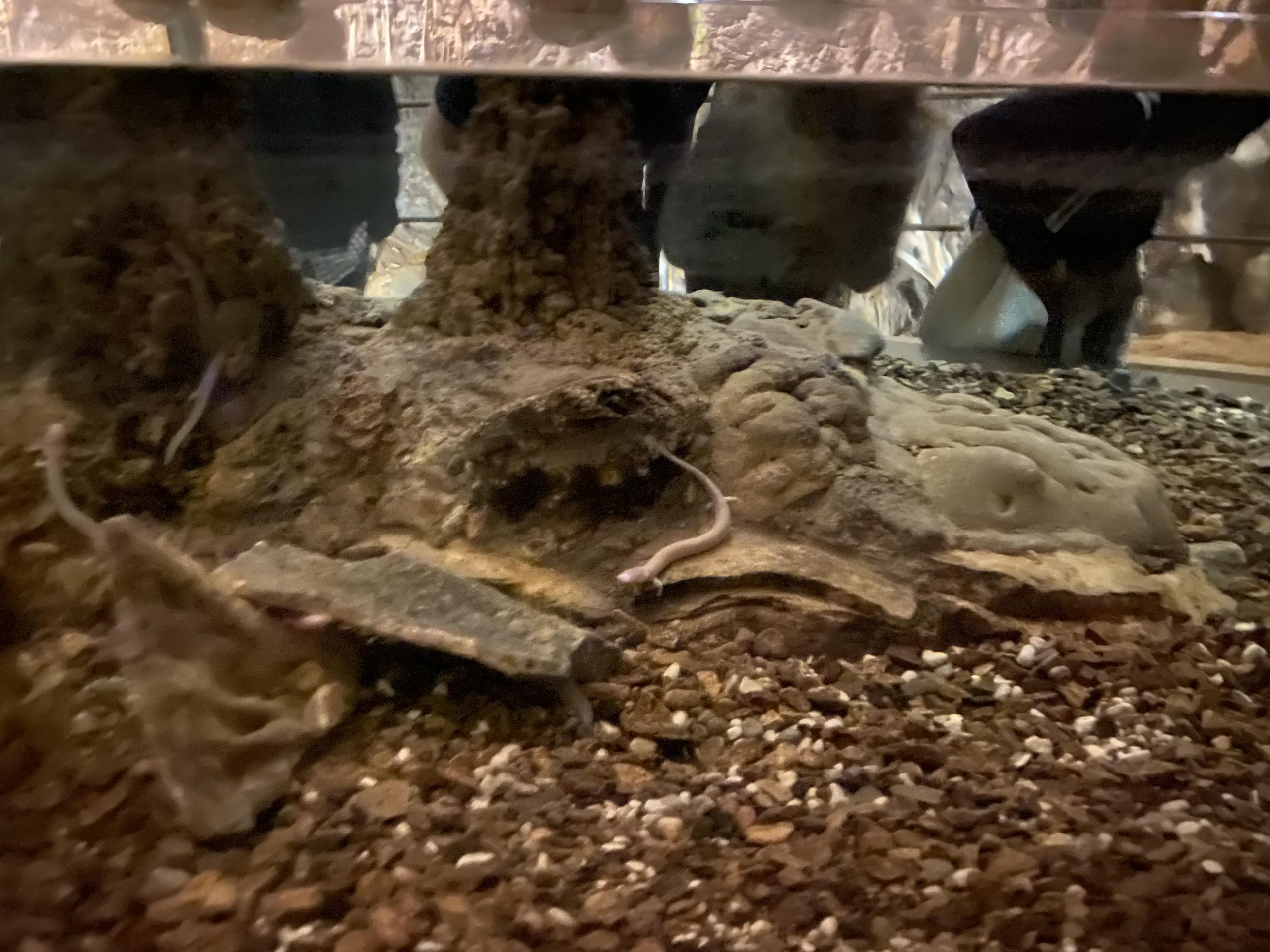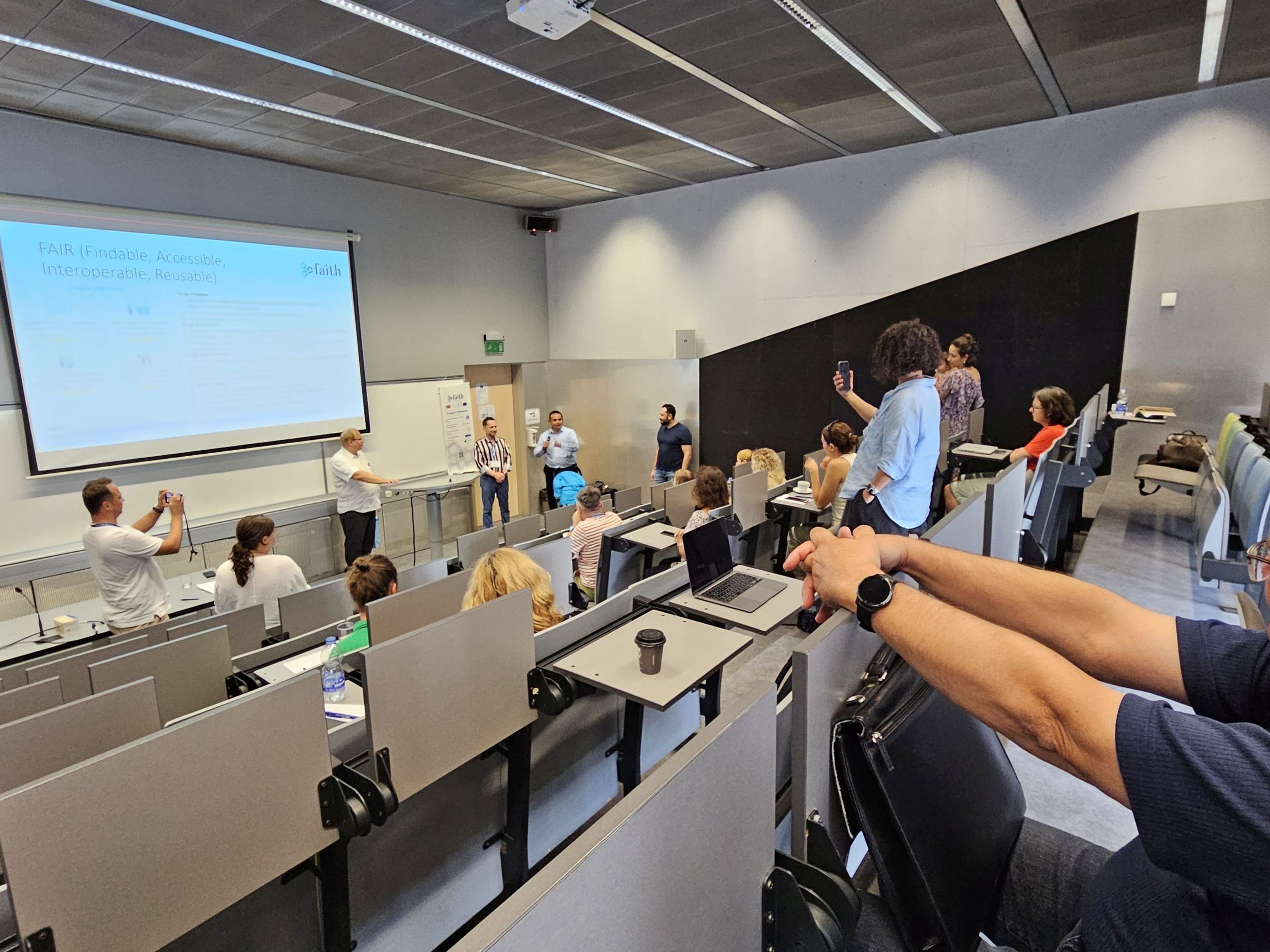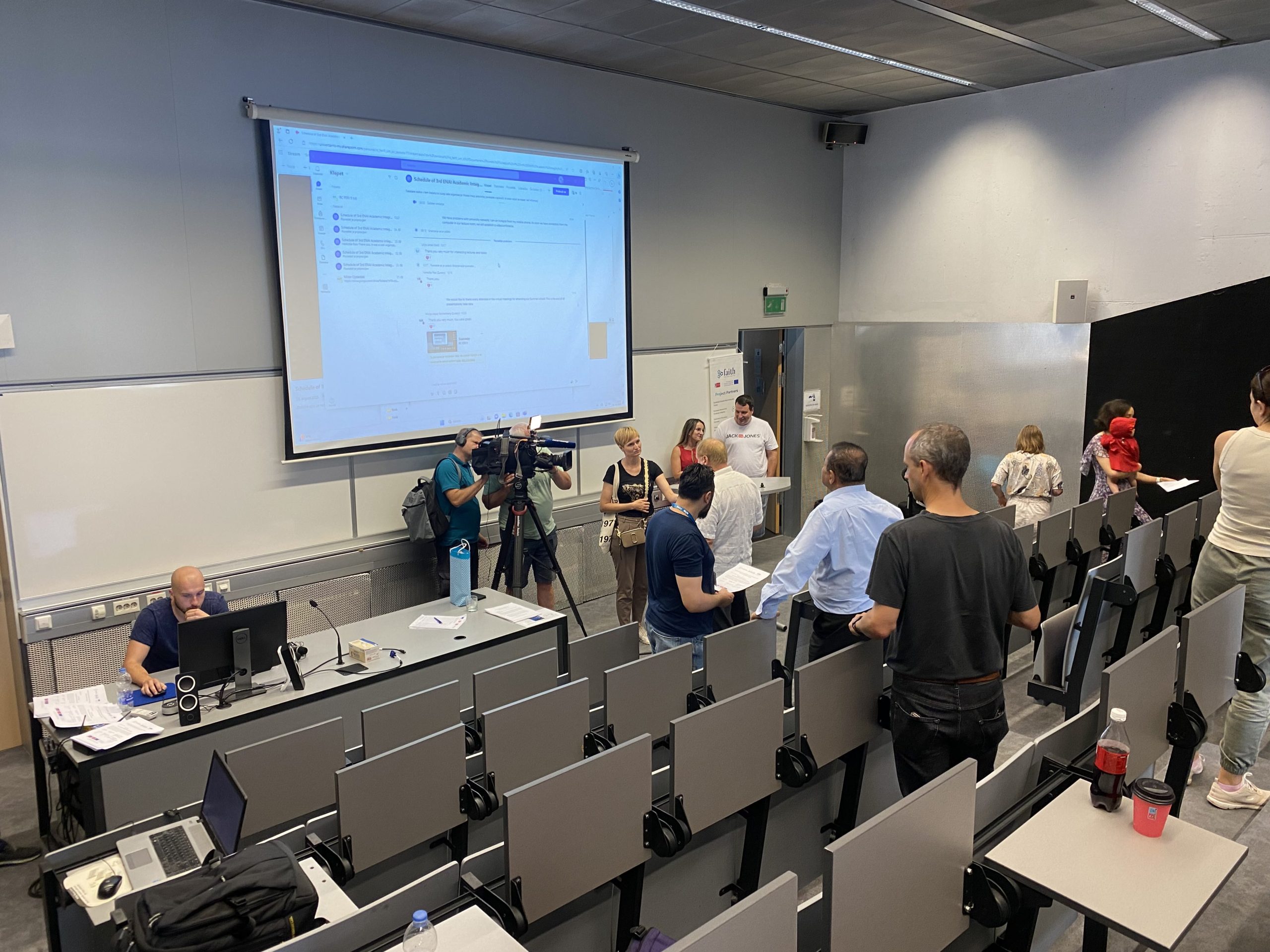On Monday, 21st August, the Summer School focused on using AI tools in relation to academic integrity. On Tuesday, 22nd August, topics related to plagiarism, contract cheating (writing of assignments for students or writing of papers by researchers by third parties), and a portal for victims of academic integrity violations were presented. On Wednesday, 23rd August, the lecturers presented how to implement an appropriate academic and research integrity policy. On Thursday, 24th August, the Summer School participants learned about ethical publication and dissemination of research results and academic writing that aligns with the principles of academic integrity. On Friday, 25th August, they learned how to answer research ethics and data management questions. On Wednesday, 23rd August, the lecturers and students visited the Institute of Information Science. The focus of their visit was on the presentation of the Vega supercomputer, the largest supercomputer in Slovenia.
-
3rd ENAI Academic Integrity Summer School 2023
21st – 25th August 2023
Faculty of Electrical Engineering and Computer Science, University of Maribor, Slovenia

-
3rd ENAI Academic Integrity Summer School 2023
21st – 25th August 2023
Faculty of Electrical Engineering and Computer Science, University of Maribor, Slovenia

-
3rd ENAI Academic Integrity Summer School 2023
21st – 25th August 2023
Faculty of Electrical Engineering and Computer Science, University of Maribor, Slovenia

-
3rd ENAI Academic Integrity Summer School 2023
21st – 25th August 2023
Faculty of Electrical Engineering and Computer Science, University of Maribor, Slovenia

-
3rd ENAI Academic Integrity Summer School 2023
21st – 25th August 2023
Faculty of Electrical Engineering and Computer Science, University of Maribor, Slovenia

3rd ENAI Academic Integrity Summer School 2023
Venue
Faculty of Electrical Engineering and Computer Science, University of Maribor, SloveniaOrganizer
Faculty of Electrical Engineering and Computer Science, University of Maribor, Slovenia
Dates
21st – 25th August 2023
Instruction Type
Face-to-faceTarget Group
Students who are interested in academic integrityEligibility
Students from the Erasmus+ FAITH project partners may apply. Partners of a FAITH project are Canakkale Onsekiz Mart University, Konstanz University, Porto University, University of Maribor, ENAI member institutions, and Slovenian academic institutions.Registration Fee
FreeAbout
The 3rd Summer School on Academic Integrity was held at the Faculty of Electrical Engineering, Computer Science, and Informatics at the University of Maribor in Slovenia from the 21st to the 25th of August in the Erasmus+ project Facing Academic Integrity Threats (FAITH ) framework. You can find presentations and videos of lectures and workshops in the Program section. The main topics covered were research integrity, data management, academic and research integrity breaches, plagiarism, contract cheating, academic writing, ethical publishing and dissemination, academic integrity policies, and academic integrity in using artificial intelligence tools.The Summer School was attended by 18 Czech Republic, Georgia, Turkey, and Slovenia students. The Summer School was lectured by 12 lecturers from the UK, the Czech Republic, Germany, Turkey, and Slovenia. Two members of the FAITH project from Portugal also actively participate in the Summer School. There were also 83 registered virtual participants (41 from Slovenia, nine from Ukraine, eight from Georgia, six from Kazakhstan, six from Oman, three from Latvia, three from Canada, two from Romania, one from Angola, one from Egypt, one from Ireland, one from India, and one from the UK) who listened to lectures and workshops via videoconference.
Organizing Committee
Milan Ojsteršek (chair – University of Maribor, Slovenia)
Salim Razı, Canakkale Onsekiz Mart University, Türkiye
Oliver Trevisiol, Kostanz University, Germany
Rita Santos, ENAI, Czechia
Laura Ribeiro, University of Porto, Portugal
Programme
1. Academic and Research Integrity
This interactive workshop will explore the importance of incorporating ethics in every step of the investigative stages of research in different disciplines. It will first explore the subtle differences in the applications of ethics and its principles between STEM and non-STEM subject areas. It will then highlight the roles of investigators, collaborators, supervisors, and the department in ensuring the research is ethically carried out. Examples of published research misconducts resulted from unethical practices will be shown as thought-provoking examples. The workshop will end by summarising the internationally acceptable Ethical Research Conduct Guidance and their expectations.
This workshop aims to raise awareness for academic and research misconduct victims and the importance of developing effective support mechanisms by exploring the work conducted within the Erasmus+ FAITH project (link), particularly within the Victim Support Portal (link). More specifically, participants will first get acquainted with the aims of the FAITH project, the role and impact of the Victim Support Portal in supporting victims of academic and research misconduct, and the need to raise awareness of victims of academic and research malpractice. Then, participants will be invited to validate an online survey designed for the FAITH project to explore participants’ knowledge, attitudes, experiences, and support needs regarding academic integrity, misconduct, and questionable practices. The validation of the survey is a crucial step to developing a large-scale study to collect evidence on the support needs of victims of academic and research misconduct and raise awareness of a topic that has been overlooked in current literature. Participants of this workshop include students, researchers, and academics, who will be presented with a dedicated online survey.
2. Data managament
Data management is a major challenge, as it is necessary to establish a process that ensures the quality, findability, accessibility, interoperability, and reusability of data. The general data management life cycle typically includes data planning, collection, organization, storage, analysis, dissemination, preservation and archiving, and disposal of data. This lecture will present practical examples of preparing a data management plan, collecting and documenting data, and publishing it in the data archive. You will also learn about the benefits of reusing data. We will also present the main anomalies that occur in the data lifecycle and violate the principles of academic and research integrity.
Handling sensitive data requires careful consideration and adherence to best practices to ensure its confidentiality, integrity, and availability. Some essential steps to handle sensitive data are identification and classification of sensitive data, implementation of data access control, encryption of sensitive data, secure storage and transmission, implementing of data breach response plan, backup and monitoring usage of data, complying with regulation, and disposing of data securely. In data handling of sensitive data, several misconducts can compromise the confidentiality, integrity, and availability of data. These misconducts include data breaches (unauthorized access or disclosure, theft, insider threats, falsification, fabrication, imputation, and amputation of data), failure to comply with data protection regulations, inadequate data security practices, improper retention and disposal of data, and failure to report data breaches and incidents. Organizations should establish comprehensive data handling policies to prevent these misconducts, implement robust security measures, conduct regular training and awareness programs, and foster a culture of data protection and ethics. This lecture will present how to manage sensitive data, desensitize it, and which are the most common breaches in handling sensitive data.
3. Plagiarism
The workshop is a mixture of information, activities to make participants think about the issues and discussions. It also presents results from European-wide surveys about plagiarism. Participants are encouraged to share their personal experience.
We will talk about the understanding of plagiarism, discuss several scenarios and assess their severity. We will also consider reasons leading students to plagiarism, discuss prevention, and also the policies and penalties necessary for prevention. As for prevention, we will share the best practices collected in the European-wide project.
In the end, a brief introduction to the technical aspects of plagiarism detection will be given: What are the plagiarism detection tools able to discover, where are their limits, and how to read similarity reports?
This is a follow-up workshop to one of the most successful educational activities of the European Network for Academic Integrity – the workshop “Where is the borderline of plagiarism”. Interpreting text-matching software similarity reports is a challenging task requiring expertise and experience. Percentages presented by the system usually do not convey much useful information. Each report has to be carefully evaluated by humans. There are three learning outcomes of the workshop: (1) Understand the pros and cons of different institutional approaches to plagiarism cases; (2) Learn more about the advantages and pitfalls of text-matching software tools; (3) Be able to judge a text-matching similarity report objectively. The core activity of the workshop is a judgment of two cases of suspicion of plagiarism. The participants’ task will be to decide whether the given case is plagiarism by interpreting a report from a text-matching software. Both cases are prepared artificially, but they are based on real student assignments. None of them can be decided at first sight, so their aim is to simulate real cases which a teacher might need to deal with when deciding about plagiarism. The reports do not come from any particular text-matching software. They were also created artificially based on features which are common in reports of the wide-spread text-matching tools, so that the activity is independent of software available at institutions of workshop participants.
4. Contract cheating
Since the lockdown following the COVID pandemic, online distance learning and many new digital tools have become much more widespread. Unfortunately, the opportunities for fraud and academic dishonesty have also increased as a result. Digital outsourcing (e.g. contract cheating, ChatGPT) of academic work is a serious breach of academic integrity and threatens learning success and confidence in higher education degrees. Such forms of unauthorised assistance are more difficult to detect than, for example, plagiarism, but we are not powerless. In this workshop we will present selected teaching materials and try them out together. We will also give tips on prevention and detection. We also want to use the workshop for the exchange of personal experiences and intensive discussion.
5. Academic writing
This session aims to provide tips to the participants relating to the development of academic writing skills. For this purpose, the session will first call attention to the characteristics of academic writing and identify the genre by making reference to the structure of academic papers. The participants will be provided with samples regarding the appropriate use of in-text citation techniques such as quoting, paraphrasing, and summarizing. More importantly, the participants will be provided with examples of inaccurate textual borrowings, such as patchwriting, that cause plagiarism. The session will also provide information about the use of visual materials with regards to copyright issues. The participants will also be informed about the benefits of reference management software in academic writing. Finally, the session will illustrate the principles of the anonymous multi-mediated writing model by following steps such as prewriting, planning, drafting, and revision originating from a balanced distribution of asymmetrical and symmetrical feedback.
6. Ethical publishing and dissemination
This workshop will focus on the process of academic publishing and cover both the positive and negative sides of academic publishing and dissemination. Using real examples, participants will be guided on identifying a reputable publishing source and checking for journals that are poor quality, hijacked, or otherwise inappropriate for academic publishing. The workshop will also provide information about fake academic conferences to help participants avoid wasting research funding or their own money by attending events that have no value to their research. The academic publication process will be explained in detail. Participants will have the opportunity to write a peer review for an abstract written by another participant and respond to feedback provided for their own abstract. At the end of the workshop, participants should have more confidence in selecting a suitable journal or conference, understanding the purpose and value to be gained from the peer review process, and maximising the benefits of feedback a peer reviewer provides.
7. Academic and research integrity policy
This workshop is suitable for anyone interested in academic and research integrity, ranging from those responsible for deciding national policies to Ph.D. candidates. It is especially important that early career researchers and Ph.D. students are aware of the need for academic and research integrity, both for the integrity of their own academic and research practice and for when they are required to support teaching activities. Approaches to academic integrity and associated policies and procedures vary greatly between institutions, even in the same country. However, as this workshop will demonstrate, there are certain characteristics that define good practice, which can and should be applied even in institutional settings where the policies are weak. This workshop will explore the scope of these policies, how they are connected to quality assurance and standards, and measures that can be taken to evaluate the efficacy of institutional and national policies.
This session will focus on how to promote academic integrity in open science implementations. For this purpose, the session will first familiarize the participants with “open science” and the relate it with the notion of academic integrity by providing basis for its importance in the academia. Open Science will then be further explained through its fundamental principles and benefits in addition to the challenges in practice. In a similar vein, participants’ attention will be called to academic integrity and consequences of misconduct so that it will be possible to discuss the link between open science and academic integrity in bilateral way by aiming to provide responses to these two questions: “How does open science promote academic integrity?” and “How does academic integrity promote open science?”. Further, the participants will be invited to share their experiences and examples from their institutions to enable discussing various forms of institutional policies and guidelines, education and training programmes, and tools and resources for promoting open science and academic integrity. Finally, we will recap the key points in the discussion session and argue possible future directions to enhance the interconnection between open science and academic integrity.
Developing and implementing academic integrity policies can be considered as a requirement in the institution of a culture of academic integrity. As policies are developed with regards to institutional approaches to academic integrity, not all policies are the same. Within this perspective, this session aims to present “academic integrity policies” themed Project Result 1 (PR1) of the Facing Academic Integrity Threats (FAITH) project. Partners involved in the FAITH project created a policy corpus in PR1 by collecting higher education academic integrity policies in three waves, including the project partners’ countries (Czechia, Germany, Portugal, Slovenia, and Türkiye), ENAI partner countries, and overseas countries such as the USA, Canada, Australia, and New Zealand. Relatively, PR1 provides a HE academic integrity policy corpus for scholars along with a web interface where users can download policies based on certain criteria. The participants of this session, as prospective users of the policy corpus, will be familiarized the web interface so that they can perform policy analysis based on certain criteria.
* This session is based on the following conference presentation.
Razı, S., Zehir Topkaya, E., Çelik, Ö., Santos, R., Sivasubramanian, S. (2023, July 12-14). Building a higher education academic integrity policy corpus [Paper presentation]. European Conference on Ethics and Integrity in Academia, University of Derby, UK.
8. AI tools and academic integrity
This workshop would show some insight of how the AI tool Chat GPT formulates answers to the questions highlighting the understanding/justifications of this Chat-bot regarding academic misconducts. Some examples of Chat-GPT’s reliability (or lack thereof) will be given to highlight the user’s responsibility to produce original and well-researched work.This will be followed by interactive discussions on ways to effectively create human-GAI interface to use this technology to minimize academic misconducts.
In summary, this workshop will critically evaluate Chat-GPT, its potential threats, and explore ways to ensure academic integrity through the appropriate use of this GAI bot.
The widespread availability of tools using generative artificial intelligence has made visible and exacerbated many of the issues and problems associated with individual student assignments. Under what circumstances is it okay to use tools like ChatGPT, and when is it not okay? In what ways should learners correctly indicate their use of AI? Can artificial intelligence co-author work? These and similar questions are partly answered by the ENAI Recommendations on Ethical use of AI in Education published by the European Network for Academic Integrity, and by APA or MLA citation recommendations. The lecture briefly introduces the principles of machine learning, large language models and generative AI. It will also present the key points of the ENAI Recommendations in the university context and discuss possible options for the future development of university education involving AI, especially from the perspective of academic integrity. The practical part will present useful AI-based tools that, if used properly, may help students to achieve desired learning outcomes, and help teachers to increase the quality of their teaching materials or make their work more efficient. A significant space of the workshop will be dedicated to sharing of participants’ knowledge and experience.
Recent advances in artificial intelligence, especially in the field of natural language processing, have started affecting the way we use systems of artificial intelligence in our everyday lives. Generative artificial intelligence tools, such as ChatGPT and OpenAssistant.io, that are capable of producing human quality text, can be used to improve productivity and generate whole documents, reports, seminars, assignments and more. As such, they can be misused and can lead to academic misconducts. This lecture will focus on the technical point of view regarding dealing with emergence of large language models and generative artificial intelligence tools that use them. It will present a timeline showing the emergence of these tools and briefly describe their inner workings in simple terms. Furthermore, the responsibility of engineers that are developing these modern tools will be debated. Lastly, a few possible methods of detecting AI generated text will be presented.
Irene Glendinning: Developing institutional policies on artificial intelligence and academic conduct
The presentation will explore and categorise different types of tools powered by artificial intelligence. It will draw on findings from a working group of staff and students at Coventry University that was established in March 2022, specifically to explore this rapidly developing phenomenon. The working group ran a consultation that operated between January and July 2023, to share their findings to date with staff and students and to capture their views on what policies and guidance would be appropriate for student use of different types of tools with AI. The guidance and policies that emerged from the working group will be presented for discussion.
Schedule
Registration
Welcome

Shiva Sivasubramaniam
Effectively engaging with artificial intelligence to formulate assessment strategies to minimize academic misconducts
Coffe break
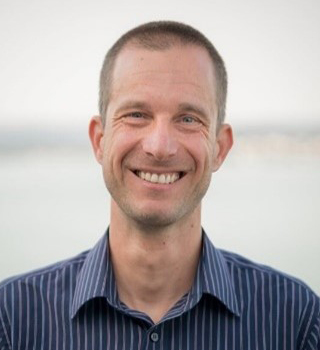
Tomáš Foltýnek
Ethical considerations of artificial intelligence in education
Lunch
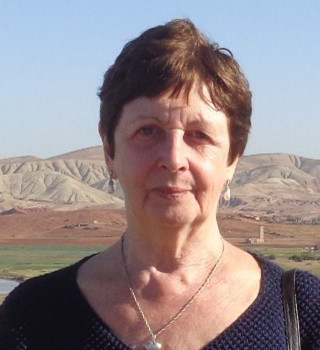
Irene Glendinning
Developing institutional policies on AI and academic conduct
Coffe break
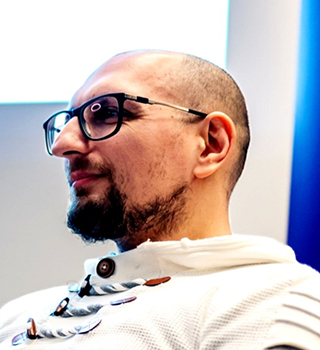
Mladen Borovič
A technical point of view on the emergence of large language models and generative artificial intelligence tools

Oliver Trevisiol
The invisible third party. Digital outsourcing of course work: What can we do about it?
Coffee break

Tomáš Foltýnek
Where is the borderline of plagiarism
Lunch

Tomáš Foltýnek
Interpreting text-matching software similarity reports
Coffee break
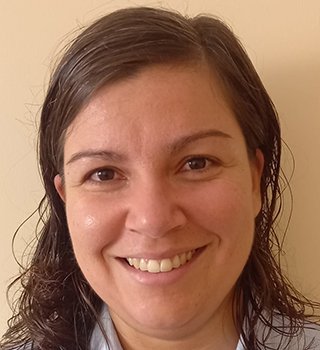
Rita Santos
Raising awareness for victims of academic and research misconduct – validation of the Erasmus+ FAITH online survey

Irene Glendinning
Policies for academic and research integrity
Coffee break

Barış Uslu & Durmuş Özbaşı
Open science policies and practices to promote academic integrity

Salim Razı & Tolga Özşen
FAITH project academic integrity policy corpus
Lunch
Visit of Institute of Information Science and the most powerful supercomputer in Slovenia

Irene Glendinning
Guidance on ethical publishing and dissemination
Coffee break

Salim Razı & Aysun Yavuz
Developing academic writing skills
Lunch
Excursion and dinner

Shiva Sivasubramaniam
Application of ethics in different disciplines before and after the ethical approval stage
Coffee break
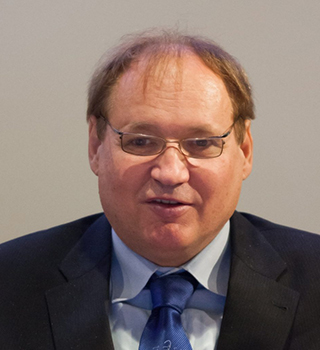
Milan Ojsteršek
Data management life cycle, handling of sensitive data and academic integrity
Closing remarks
Lunch
All lectures and workshops will be held in the G2 – Beta Lecture Hall (a map of the Technical Faculties buildings, and a map of the G2 building) at the Faculty of Electrical Engineering, Computer Science and Informatics, University of Maribor, Koroška cesta 46, Maribor. Virtual participation will also be possible. Registration for virtual and F2F participation will be possible via the online form on the Summer School website).
Lecturers
-

Dr. Tomáš
Foltýnek
Dr. Tomáš Foltýnek is an assistant professor at the Department of Machine Learning and Data Processing at the Faculty of Informatics, Masaryk University, Czechia. He is President of the Board of the European Network for Academic Integrity. He is also a vice-chair of the Bureau of the Council of Europe's Pan-European Platform for Ethics, Transparency, and Integrity in Education (ETINED), and a deputy head of the Working Committee on Ethics in Scientific and Pedagogical Work within the Council of Higher Education Institutions in Czechia. His research activities involved plagiarism detection and prevention, academic integrity policies and ethical use of artificial intelligence in education. He has led several national and international projects on academic Integrity, namely plagiarism prevention. Since 2013 he has been organising conferences on this topic. He is a certified VIRT2UE research integrity trainer.
-

Dr. Shiva
Sivasubramaniam
Dr. Shiva Sivasubramaniam started his research in the field of integrity sciences in 2002. His research mainly focuses on all aspects of academic Integrity and research ethics, particularly in the field of medical sciences. His pioneering approach of case study-based teaching has been adopted by many researchers and institutions as an innovative and engaging way of teaching integrity. His current research involves measures to effectively engage with artificial intelligence to minimize unethical use by students and academics. He has been a member of ENAI since its inauguration and has contributed to every summer school in different parts of Europe and beyond. He also leads the ethics and integrity advisory working group.
-
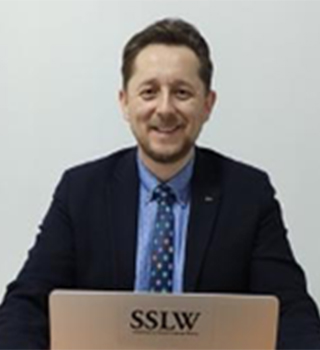
Dr. Salim
Razı
Dr. Salim Razı is an associate professor at the English Language Teaching Programme of Canakkale Onsekiz Mart University (COMU), Türkiye. He is the Founder Director of COMU Centre for Academic Integrity. He acted as a (founder) Board member of the European Network for Academic Integrity between 2017 and 2023. He developed the 'transparent academic writing rubric' and struggles to prevent plagiarism through the 'anonymous multi-mediated writing model', for which he was awarded the Turnitin Global Innovation Award in 2015. His model was also listed as a good practice by the Australian Government Tertiary Education Quality and Standards Agency in 2017. He is the coordinator of EU Erasmus+ KA2 project ``Facing Academic Integrity Threats (FAITH)``. He published in THE on training ambassadors of academic Integrity, in System on promoting academic Integrity during emergency remote teaching, and in the Handbook of Academic Integrity on streamlined collaboration to face academic integrity threats.
-

Dr. Irene
Glendinning
Dr. Irene Glendinning has devoted more than 50 years to supporting and educating students and colleagues. Her extensive research, including plagiarism, academic and research integrity, corruption, student experience, quality assurance, and pedagogy, has provided a solid basis for her understanding of different challenges faced by academics, researchers, and students and how to respond to them. Her current roles include being an institutional lead for academic integrity at Coventry University and a member of various groups and advisory bodies on academic integrity.
-

Dr. Rita
Santos
Dr. Rita Santos is the Executive Director, Senior Researcher and Project Manager of the European Network for Academic Integrity (ENAI). She is the Coordinator of one of the Erasmus+ FAITH Project's outputs that aim to raise awareness for victims of academic and research misconduct through an interactive online platform – the Victim Support Portal. She is also the Coordinator of ENAI's Support for Victims of Academic Misconduct Working Group. Dr Rita Santos was a Junior Researcher at the H2020 INTEGRITY project, where she developed teaching materials about Academic Integrity and Responsible Conduct in Research for high school students. She also developed Research Ethics and Integrity seminars for PhD students and Postdoctoral researchers. She is a certified VIRT2UE Research Integrity Trainer.
-
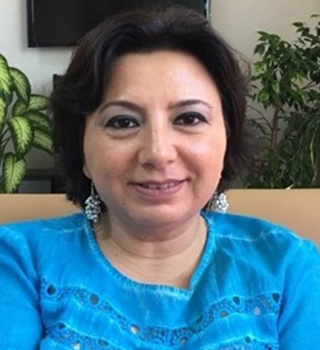
Dr. Aysun
Yavuz
Dr. Aysun Yavuz is a full professor at Çanakkale Onsekiz Mart University, Faculty of Education, Department of English Language Teaching, Çanakkale, Türkiye. She holds a MEd. in communicative language teaching (University of Newcastle Upon Tyne, UK) and an EdD. in teacher education (University of Nottingham, UK) on reflective teaching. She has been teaching undergraduate and graduate courses such as ``Research Skills``, ``Fundamental Issues in Teacher Education``, and ``Academic Writing Skills in Natural Sciences``; and has supervised theses/dissertations on various topics including the promotion of academic Integrity in assessment during emergency remote teaching. Dr. Yavuz acted as the as a member of the COMU Ethical Approval Board. Dr. Yavuz is a member of Facing Academic Integrity Threats project team. She has been working as the Head of School of Foreign Languages since 2015 where she aims to institute a culture of academic Integrity by means of series of professional development seminars for staff and students.
-

Dr. Oliver
Trevisiol
Dr. Oliver Trevisiol is a subject librarian for history, theology, and education at the Communication, Information, Media Centre (KIM), University of Konstanz, Germany. He is also responsible for activities related to the prevention of plagiarism and digitization. Oliver Trevisiol studied history, philosophy, and political science at the University of Konstanz and York University, Toronto, and received his Ph.D. in modern history form University of Konstanz in 2004.
-
Dr. Tolga
Özşen
Dr. Tolga Özşen is a full Professor of Japanese Studies at the Japanese Language Teaching (JLT) Program of Çanakkale Onsekiz Mart University (COMU), Türkiye. He has been acting the department chair of both undergraduate and graduate JLT programs, and vice director of COMU Center for Academic Integrity. He recently led a research team and published an article on testing of support tools to detect plagiarism in academic Japanese texts. Dr. Özşen is a member of Facing Academic Integrity Threats project team. He is also a member of the COMU Social Sciences and Humanities Scientific Research and Publication Ethics Committee. He supervised a master's thesis on the determination of perception and attitudes on writing anxiety and academic integrity violations in Japanese. In addition to his main areas of expertise, such as Japanese language and culture education, post-war Japanese society, and the Japanese education system, in recent years, he has been focusing on academic misconduct issues in Japanese language, particularly detecting and preventing plagiarism in Japanese language teaching.
-
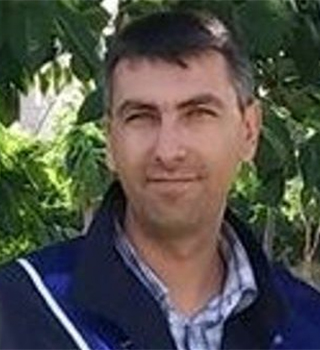
Dr. Baris
Uslu
Dr. Baris Uslu is an associate professor at the Department of Educational Sciences, Faculty of Education, Canakkale Onsekiz Mart University (COMU), Türkiye. His studies mainly focus on higher education policy and management. Achieving a nationally competitive scholarship, he visited the University of Sydney, Australia, to study academic intellectual leadership and high-ranked universities. Then, he also joined the international research consortium ``Academic Profession in the Knowledge-based Society (APIKS)`` in which teams from more than 30 countries participated. Recently, he has been acting as an expert in the Turkish Higher Education Quality Council (YÖKAK) and carrying out research on sustainable quality management in universities. Dr. Uslu is a member of Quality Commission both at the faculty and university level. He is also a Board member of the COMU Centre for Academic Integrity and a member of the Facing Academic Integrity Threats project team. Additionally, he has served in different funding bodies (e.g., TUBITAK, Qatar Foundation, University of Vienna REWIRE) and academic journals as a panellist, expert evaluator, editorial board member or reviewer.
-
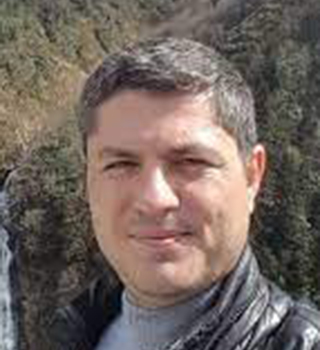
Dr. Durmus
Özbaşı
Dr. Durmus Özbaşı is an associate professor at the Measurement and Evaluation Programme of Canakkale Onsekiz Mart University (COMU), Türkiye. As an expert of quantitative data analysis, Dr. Özbaşı has published widely at national and international levels on various topics including ethics in the measurement and evaluation, measurement and evaluation perceptions of the teacher candidates, the scale development-adaptation, the competency tests of the students' achievement and assessment for the primary school teachers, item response theory, computerized adaptive testing, the method of selecting the items in the computerized adaptive testing, the missing data problem in addition to other quantitative data analysis. Dr. Özbaşı is a member of Facing Academic Integrity Threats project team and he has been serving as a screening committee member of several PhD dissertations dealing with teaching and assessing writing with regards to the promotion of academic Integrity.
-

Dr. Milan
Ojsteršek
Dr. Milan Ojsteršek is the Head of the Laboratory for Heterogeneous Computer Systems at the University of Maribor, Faculty of Electrical Engineering and Computer Science. His research focuses on heterogeneous computing systems, digital libraries, open access, natural language processing, semantic web, academic integrity, and plagiarism detection systems. He leads the development and operation of Slovenian open access infrastructure. Part of this project has been the development of rules and processes for mandatory submissions of electronic theses, dissertations, research publications, and research data in repositories of Slovenian universities. Before the final version of the thesis is published in the repository, any similarity in content is detected using the text-matching software implemented in the national portal that has been developed under his leadership. Milan Ojsteršek is a member of the Auditing group of the European Network for Academic Integrity (ENAI).
-

Mladen
Borovič
Mr. Mladen Borovič is a teaching assistant and a computer science PhD student at the Faculty of Electrical Engineering and Computer Science, University of Maribor. He is associated with the Laboratory for Heterogeneous Computing Systems where he is pursuing research in topics like recommender systems, information retrieval, text mining, natural language processing, plagiarism detection, conversational agents, question answering, large language models and generative artificial intelligence. He has worked on several major projects including the search engine and recommender system in the Slovenian open-access infrastructure and a WhatsApp chatbot for use with Direct4.me parcel lockers. He has obtained 9 NVIDIA Deep Learning Institute certificates related to artificial intelligence systems and applications.
Videos and Presentations
Academic and Research Integrity
Data managament
Plagiarism
- Tomáš Foltýnek: Where is the borderline of plagiarism
- Tomáš Foltýnek: Interpreting text-matching software similarity reports
Contract cheating
Academic writing
- Salim Razı & Aysun Yavuz: Developing Academic Writing Skills
Ethical publishing and dissemination
- Irene Glendining: Guidance on ethical publishing and dissemination
Academic and research integrity policy
- Irene Glendinning: Policies for academic and research integrity
- Barış Uslu & Durmuş Özbaşı: Open Science Policies and Practices to Promote Academic Integrity
- Salim Razı & Tolga Özşen: FAITH Project Academic Integrity Policy Corpus
AI tools and academic integrity
- Shiva Sivasubramaniam: Effectively engaging with artificial intelligence to formulate assessment strategies to minimise academic misconducts
- Tomáš Foltýnek: Ethical considerations of artificial intelligence in education
- Mladen Borovič: A technical point of view on the emergence of large language models and generative artificial intelligence tools
- Irene Glendinning: Developing institutional policies on artificial intelligence and academic conduct
Venue
Get Directions:
Enter Destination From input field below to get directions to our event location
Faculty of Electrical Engineering, Computer Science and Informatics
University of Maribor
Koroška 46
2000 Maribor
Slovenia
Please see our location on https://goo.gl/maps/77J1PKGpLGGnUHHU9
The Faculty of Electrical Engineering, Computer Science, and Informatics is located in the center of Maribor, and it consists of three connected buildings:
- The main building of the Faculty is G2, and the main entrance is from the Koroška Street.
- There is also an old part of the Faculty that we share with other Technical faculties – the entrance to this building is at Smetanova 17.
- The newest building (G3) is also known as Baroness’s house. It is one of the most beautiful and cleanest preserved secession buildings in Maribor. The entrance to this building is also from Smetanova.
Take a virtual tour of our faculty at https://feri.um.si/virtualni-sprehod/
Getting in Maribor
By plane
You can fly with low cost flights to our capital Ljubljana or our neighbour countries: Austria (Graz, Klagenfurt, Vienna), Hungary (Budapest), Italy (Venice, Treviso, Tri-este), Croatia (Zagreb). From there you can take a train, a bus, a taxi or Slovenian pick up shuttles to Maribor.
Airports near Maribor
- Ljubljana Airport(130 km, 1h 40 min by car)
- Graz Airport (A)(60 km, 45 min by car)
- Airport Zagreb (HR)(130 km, 1h 40 min by car)
- Trieste Airport(250 km, 2h 40 min by car)
- Vienna International Airport (A)(265 km, 2h 35 min by car)
- Venice Airport Benetke (I)(360 km, 3h 40 min by car)
- Budabest Airport (H)(365 km, 3h 40 min by car)
Transport from airports: GoOpti shuttle service or use train or buses.
By train
You can reach Maribor by train from all major surrounding cities. There is a direct connection from Ljubljana and Graz, from elsewhere there are some stops you’ll have to make in between. For more information visit Slovenske železnice – Slovenian Railways
By bus
Maribor is directly connected with towns in Austria, Germany, Hungary and Italy. Organisation in your own country may be able to offer discount to students and to those under 26. We also suggest using Flixbus.
By car
All major surrounding cities: Venice, Vienna, Salzburg, Graz and Budapest are motorways associated with Maribor. Directions:
- Graz (A): E57/E59
- Budapest (H): E71/E59
- Zagreb (CRO): E59/E70
- Vienna (A): On the southern road leading to Graz proceed the way to the border crossing Šentilj.
From Italy: From the border crossing Fernetiči continue the path to Ljubljana and then to Maribor.




